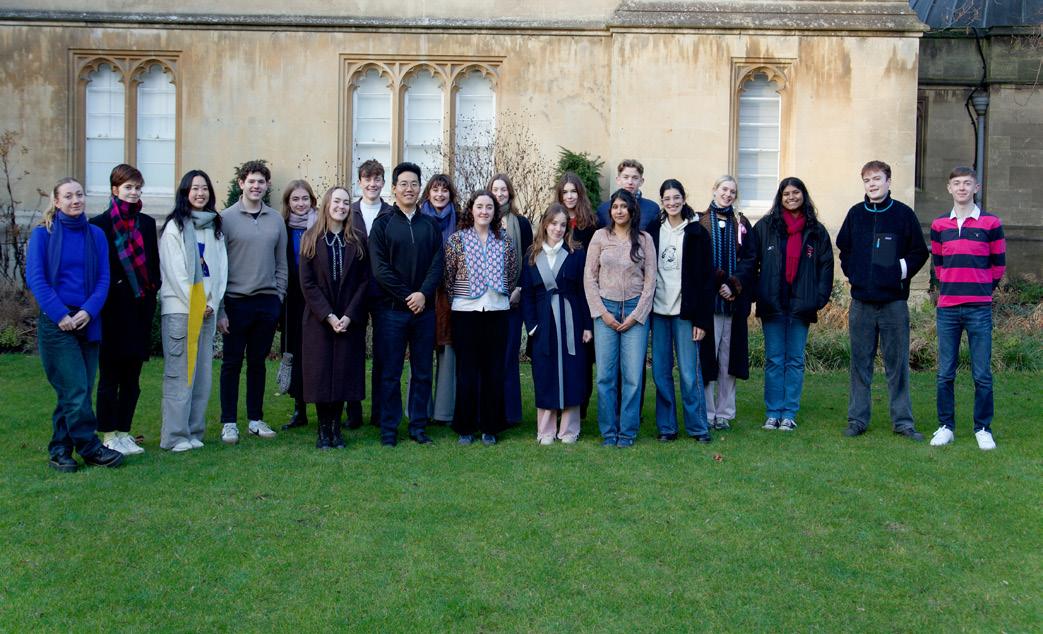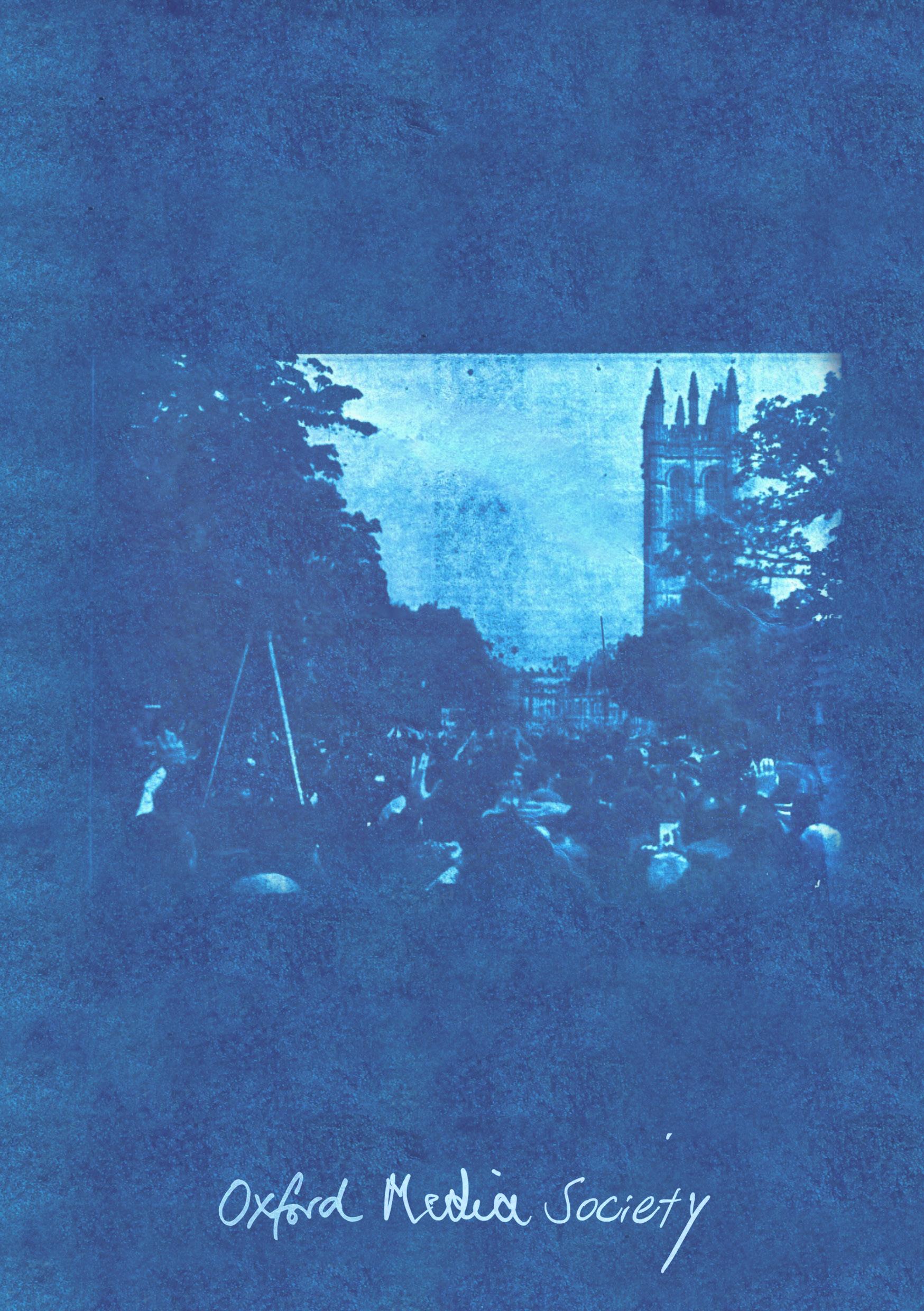




What links the founders of the Spectator, Louis Theroux, and the editor-in-chief of the Guardian?
They were, of course, all Oxford students. By 2004, the university had long been producing journalists and powerful media figures. Arguably once the most powerful of all, Rupert Murdoch read PPE by the duck pond of Worcester College, with a bust of Lenin reportedly on his mantelpiece.
Yet twenty years ago we noticed a gap in Oxford’s multitude of student societies. They existed for chemistry and archaeology, for wine and European affairs. And there were several celebrated student publications. But there wasn’t, as we realised in a meandering and possibly pint-fuelled conversation one day, a society dedicated to exploring and examining the media.
With a shared passion for journalism fuelled by our time editing The Oxford Student newspaper, it was an industry we were hungry to work in –and find out more about. Having forged close friendships over front-page edits, powered by kebab van chips as late-night deadlines approached, we were also keen to collaborate on another project. Just preferably one that – unlike our previous roles as student editors –wouldn’t demand up to 60 hours a week of us and risk us failing our finals.
We decided to set up the Oxford Media Society – evoking ancient messenger gods with the rather grand secondary name ‘Talaris’ – as a way to learn and share more about the industry by hearing directly from the pros. In its first term, several high-profile journalists graciously found time to speak to a bunch of curious students – from the then head of Sky News Nick Pollard, who led our opening event at Modern Art Oxford, to the first woman presenter of the Today programme Libby Purves, who convinced us that radio is the greatest medium.
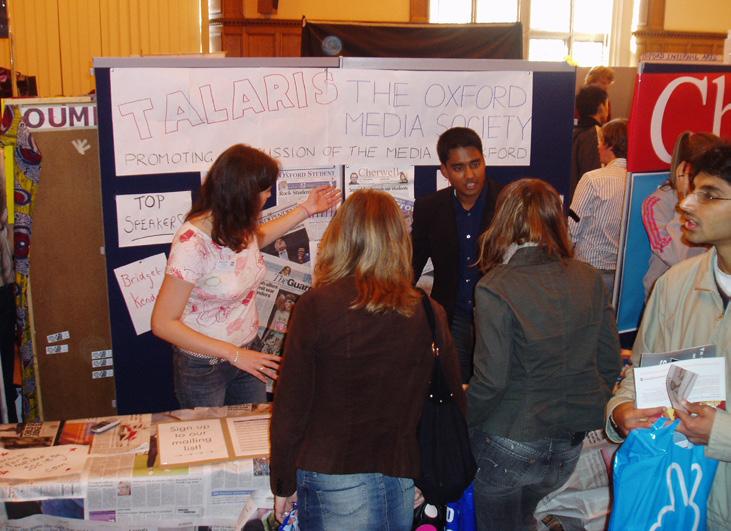
We had seriously limited funds but an eye for money-saving tactics: at one point Zoe drove Lindsey Hilsum to and from the station, which at least meant two fewer taxi bills to cover. Vish and Rachel negotiated hard with Majestic Wine for a bulk deal on their cheapest plonk (Cuvée
Richard, for the record). We were very grateful to Paddy Coulter – then the Director of the Reuters Journalism Programme, which soon after transformed into the Reuters Institute for the Study of Journalism – who came on board as the founding senior member and all-round cheerleader, giving us invaluable guidance and support.
But still we doubt that we imagined the society would last more than a few years. So it’s a delight to see it thriving two decades later – even if the name ‘Talaris’ didn’t fly for long. Alongside the society, Zoe also founded The Oxford Forum, the university’s first student-run current affairs magazine, which we hope might yet see a sustainable second life.
Its ten issues had a readership of over 5,000 and contained some extraordinary journalism, with contributions fielded from both students and some wildly ambitious invitations (thank you, the Dalai Lama!). It also kick-started stellar journalistic careers, such as that of Pulitzer Prize winner James Ball. Perhaps this
commemorative issue might inspire some future journalists to fully revive the magazine – once described by Tim Gardam, then principal of St Anne’s and former director of programming at Channel 4, as “far more readable than Prospect, with much more meat than The Spectator and less utilitarian than The Economist”. We’d like to subscribe!
As we ponder how the media landscape has changed, we can’t fail to notice a concurrent 20th anniversary – that of Facebook. After its initial launch at Harvard and then various Ivy League and Boston-area universities, the platform was rolled out to students at Oxford and Cambridge during our final year and in its brief iteration as [thefacebook] – when “poking” was apparently an appropriate way to flirt online. (Questionable dating site Oxford Romance or “OxRo” was possibly the only other way to do so at the time.) Given how Facebook has since exploded, shifting how the world works in some positive and many negative ways, it feels strange to think that we were among the first to have access after the original handful of US colleges.
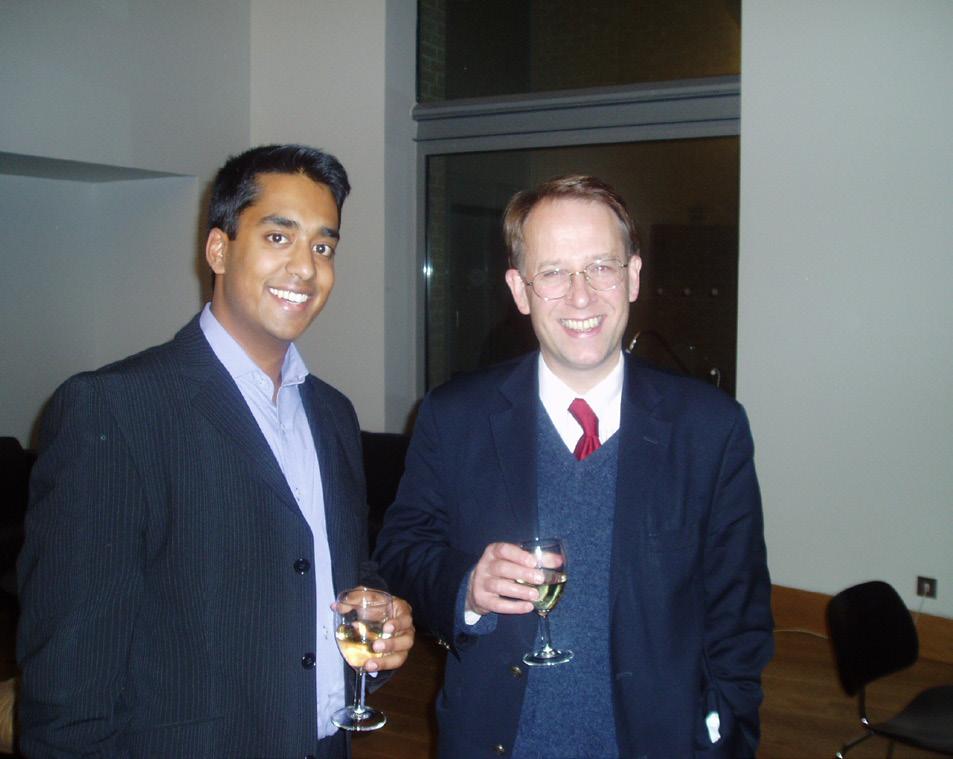
We feel somewhat liberated by the thought that we enjoyed most of our student years just before social media took off, when birds tweeted and clocks tik-tokked (sorry), and no one had camera phones to capture drunken nights out or had yet come up with the idea of a selfie. According to a BBC news article from 2004, our first society event discussed the future of the media, including “speed and technology versus the quality of journalism” – and how we wish we had a video of that talk to
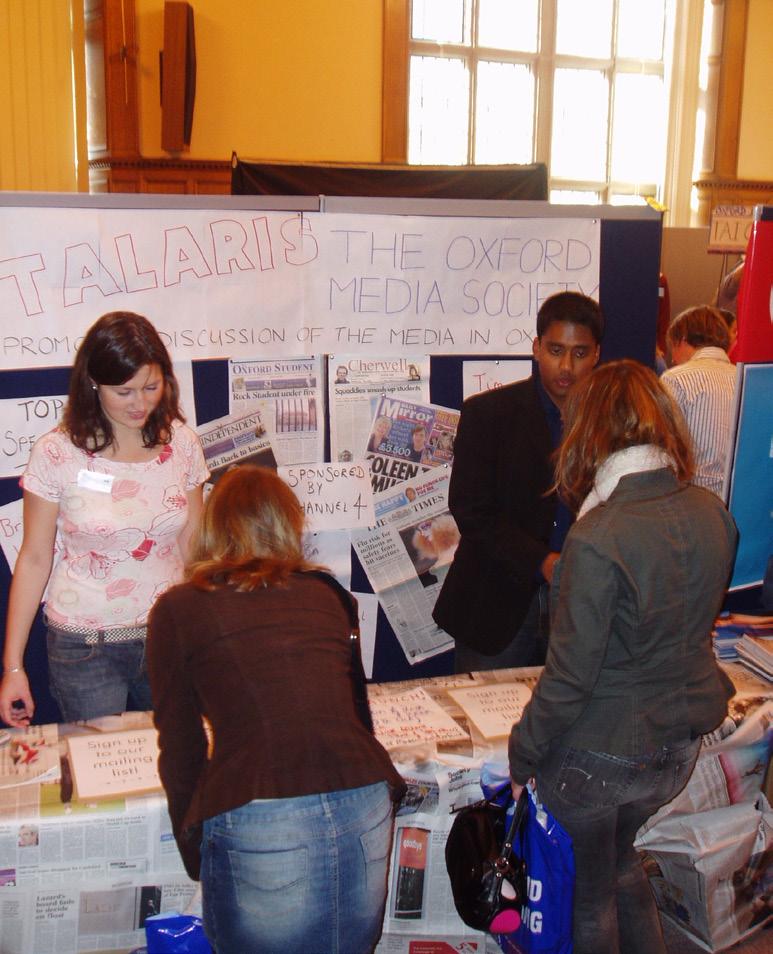
see what prescience, or lack of, it contained. We quite possibly had a sense of being on the cusp of change, but certainly couldn’t imagine how transformational the next 20 years would be for the media and the information landscape in general.
So transformational that when we discussed who had a window in their hectic schedules to draft this piece, our founding treasurer Katya Srivastava suggested, on WhatsApp, that we ask ChatGPT to do it for us to save time. As it was, we managed to cobble something together on Google Drive – which launched as Google Docs and Spreadsheets just after we graduated – with extra research on LinkedIn and X (formerly Twitter) and ideas shared by VoiceNote, which we then transcribed using AI for speed. All of which would have been hard to imagine back when we were students.
Perhaps the most exciting press development during our university years was the Independent
newspaper moving to tabloid format. Now the print version no longer exists. Social media platforms like Instagram and TikTok are the go-to news sources for 16- to 24-year-olds, according to Ofcom’s latest report on news consumption in the UK, with BBC One the only traditional media source to feature in the top five.
For all the broadening of access, the challenges are daunting – from the spread of false information to the influence of algorithmgenerated echo chambers on political outcomes and much more. We are yet to fully comprehend the increasingly pervasive role and power of AI. Journalists also have bridges to build: the share of British people who trust news “somewhat” or “completely” has declined to under 40 percent, according to the Reuters Institute.
Fake news and misinformation have been buzzwords in recent times, but we were also complaining about bad journalism back in 2004 – and propaganda has been used to influence all sorts of outcomes since mass communication began. Some of the issues that may seem new are perhaps newly amplified – existing problems now fired up on technological performance enhancers.
We see reasons for optimism in our own careers. Rachel works for an international news agency that now has 120 journalists dedicated to investigating viral online content that is potentially harmful to the public. Despite our ever-shortening attention spans and appetite for ‘f**king tasty morsels’ (in the words of Succession’s Roman Roy), documentary filmmaker and long-form writer Zoe notes a hunger for in-depth coverage.
Amid turbulent times for the industry, the need for
principled and tenacious journalists has never been stronger. People who are motivated by the importance of accurate and balanced reporting – and who are eager to pick up the skills and experience required to do it. The student media space offers an unrivalled opportunity to find out if you want to be among them.
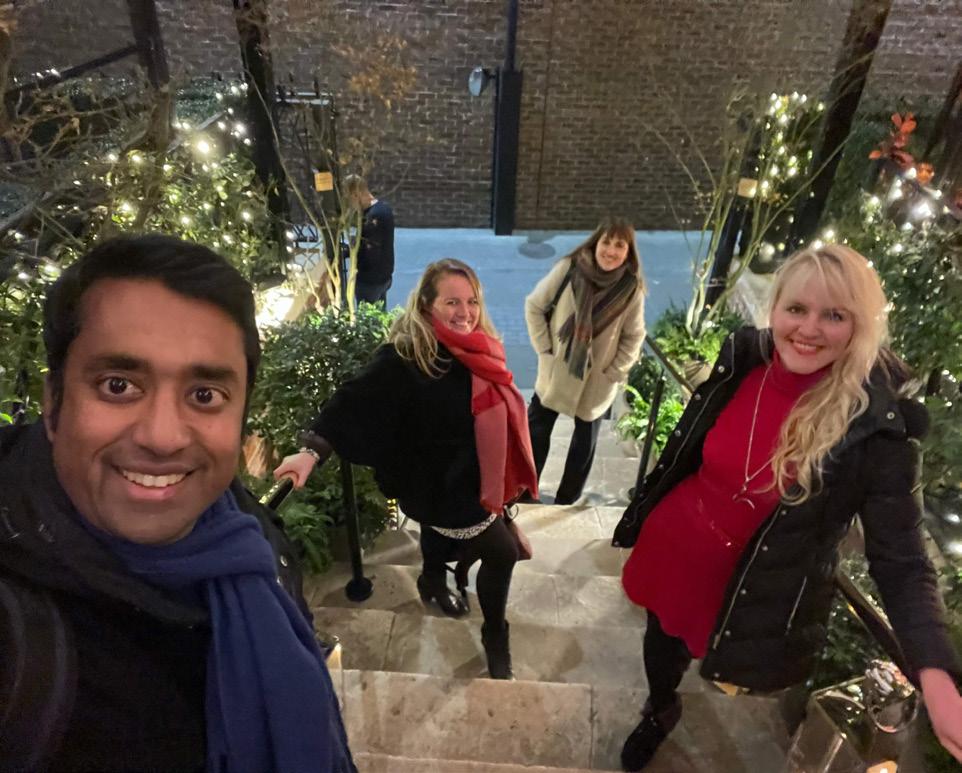
But the Media Society was never just for aspiring journalists. Oxford has an unparalleled track record of producing world leaders, in politics, diplomacy and countless other fields. We hope that as it continues to provide a thoughtful space for critical but unjaded debate about the media, the society can encourage all students to consider what roles they might want to play as both news-makers and consumers.
We feel honoured to contribute to this special edition of the Oxford Forum and we hope to continue cheering on the society and magazine in coming decades. And, better still, we remain great friends to this day! How lucky we feel to have found fellow students with similar passions and energy – and with whom we still enjoy doing goofy Christmas photo shoots. This could be you in twenty years from now – although your snap might be taken by a tiny flying robot or some other unimaginable iteration of technology, rather than a soon-to-be old-fashioned selfie.
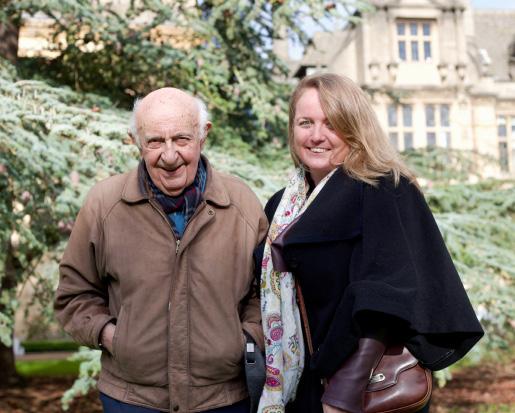
Covid-19
KEN MWORIA AWOKE in the middle of the night to a phone call from his labour ward. Just a few months out of medical school, he was head of the gynaecology department of a small hospital in southern Kenya. His colleague sounded stressed. A patient had just given birth via an emergency caesarean section. The boy was doing well, but his mother was still lying on the operating table. The surgeon couldn’t stop the bleeding.
Mworia raced to the hospital. What was happening to this woman was not usual. Kenya has one of the highest rates of maternal mortality in the world, and the woman’s diagnosis of postpartum haemorrhage, or excessive bleeding after childbirth, is one of the biggest killers. What panicked Mworia, though, was the fact that his colleague had already attempted to save her using the best tool available: a drug called oxytocin.
Oxytocin is an essential medicine given to patients around the world at almost every birth. The hospital’s protocol stated that doctors could give patients up to 30 units to stop excessive bleeding. But as he scrubbed in, Mworia learned
that his colleague had already given the woman much, much more. In an attempt to get the drug to work, he had administered 100 units. Over and over, the man asked, “What did I do wrong?”
But the surgeon had done nothing wrong. “I told him the oxytocin didn’t work,” Mworia said. The drug should have stopped the bleeding, but instead “it was almost as though they were giving her water.”
“The drug should have stopped the bleeding, but instead “it was almost as though they were giving her water.”
Mworia’s experience with bad oxytocin is just one story that demonstrates doctors’ struggles against the inequality that permeates — indeed, upholds — our global health systems. As a reporter at the Bureau of Investigative Journalism, I have spent the early part of my career exposing wrongdoing in these systems:
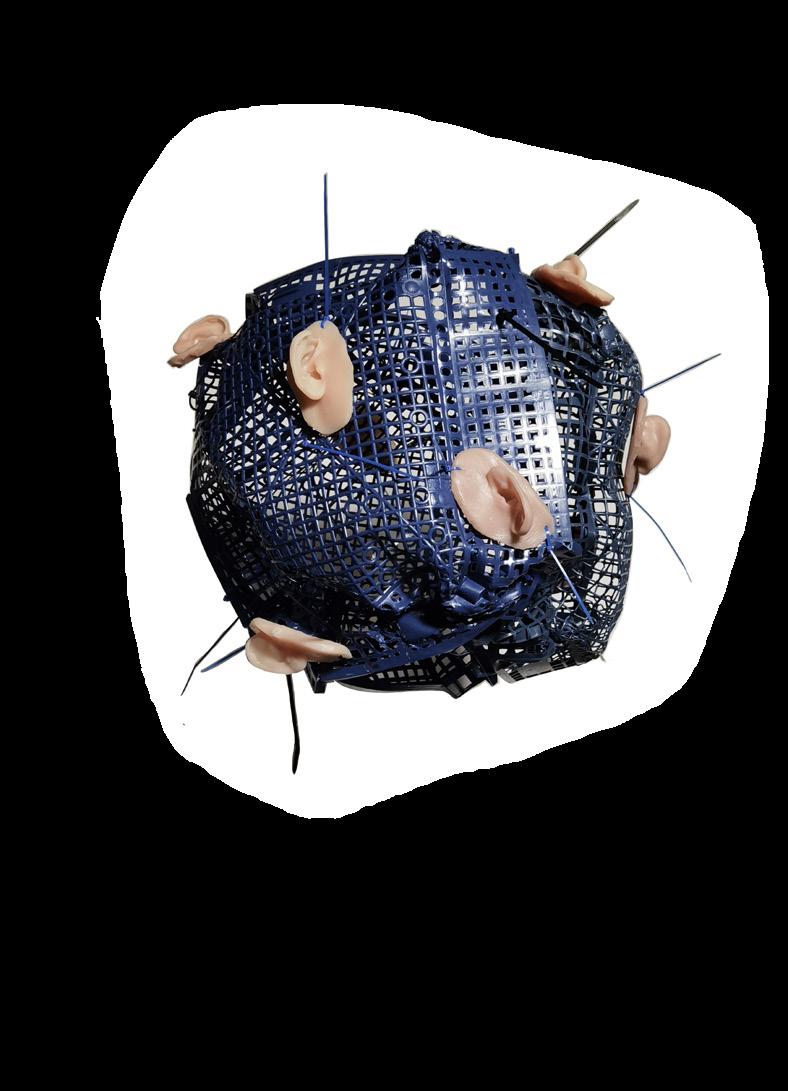

unmasking the manufacturers making poorquality medicines, the companies profiteering from patients’ pain, and the organisations failing to uphold their promises to the world’s most vulnerable.
At the heart of this work has been the question of access and equity. Billions of people across the globe cannot get the medicines they need. Despite huge advances in global health, available, affordable, and effective health care remains out of reach for a majority of the world’s population.
The Covid-19 pandemic offered us the opportunity to transform the way we think about global health and reorganise the power structures that make people well — or keep them sick. But four years after the UK’s first
art by Amber Ellis-Keelerlockdown, a revolution in global health has yet to take hold.
The depth of the fissures separating the healthhaves from the have-nots became apparent to many in the West during the first years of the pandemic. While we here in the UK were the first in the world to receive Covid-19 vaccines, it was always clear that those living in poorer nations were likely to miss out. Before vaccines were even available, the US had reserved enough doses to vaccinate its population four times over. Canada: six.
Hoping to counteract the West’s vaccine greed, a trio of global health giants set up an ambitious platform called Covax in April 2020, which aimed to provide equitable access to the vaccines. But Covax soon began to fall behind. By the time I began reporting on the platform, it had turned from a vision of solidarity to an operation based on charity.
Confidential internal documents and interviews with officials from more than two dozen nations revealed how countries received vaccines months late or with little notice, throwing vaccination campaigns into chaos. In some cases, vaccines that arrived close to their expiry dates were returned or destroyed after governments were unable to distribute them in time.
Covax aimed to provide enough vaccines for poor countries to vaccinate 20 percent of their populations. Its goal was to deliver 2 billion doses by the end of 2021. But the platform closed at the end of 2023 without ever reaching that target. Today, billions in the poorest countries remain unvaccinated against Covid-19.
Meanwhile, the UK has thrown away millions of unused Covid vaccines after scrambling to pre-order huge numbers at the height of the pandemic.
Even when medicines are available, high prices can prevent patients from receiving what they need. Across Africa, my team at the Bureau found major issues with access to medical oxygen, after experts said the high prices set by two major gas suppliers made the treatment unaffordable.
Oxygen is a key treatment not only for Covid-19 but also pneumonia, which continues to be the single largest infectious cause of death in children worldwide. Studies from Malawi and
“And what about those patients who, having paid for and received their medicine, discover — sometimes too late — that their drug is defective?”
Nigeria show that less than a third of adults and children who need oxygen receive it. Patients sometimes discharge themselves against medical advice because the cost of oxygen treatment is too high.
At the same time, ex-employees and analysts told us that some gas companies have likely made profit margins of between 45% and 88% on medical oxygen. (The companies denied this).
And what about those patients who, having
paid for and received their medicine, discover — sometimes too late — that their drug is defective? Last year, we revealed that children around the world are receiving brands of a chemotherapy drug that have failed quality tests.
“Last year, we revealed that children around the world are receiving brands of a chemotherapy drug that have failed quality tests.”
In some cases these brands fell well below the standard needed to treat cancer. Many have also been found to contain contaminants such as bacteria that could be harmful to patients. And although at least seven manufacturers were warned that their products did not meet minimum manufacturing quality standards, we found that they continued to sell the drugs to patients in low- and middle-income countries.
“What’s happening here is a disaster,” said Professor Vaskar Saha, who tested some of the brands in India. “This is an issue of money, resources and equity.”
In Kenya, bad oxytocin could be the result of an unscrupulous manufacturer cutting corners to save cash. But the drug also needs to be kept cold to work properly. Perhaps Dr Mworia’s experience is the result of a warm refrigerator in a hospital that experiences frequent power cuts. Or perhaps it is the result of an untrained or harried nurse who was never taught that this medicine must be kept in the fridge. It makes no difference to the woman on the operating table.
Mworia and his colleague worked through the night to save their patient. They gave her a transfusion and administered another drug that they thought might stop the bleeding. Eventually, it did. The woman recovered, slowly, and went home with her newborn son a week later. A near miss, Mworia recalls, that stays with him.
What makes a woman in Kenya more likely to die in childbirth than a woman in England? What makes a company stop manufacturing a cholera vaccine as global outbreaks surge?
The late Dr Paul Farmer, a physician and activist, said “the idea that some lives matter less is the root of all that is wrong with the world.” His view that medicine should be viewed as social justice is one I returned to as I interviewed those working on Covid’s front lines.
The pandemic showed us how borderless we are when it comes to health; how diseases know no nations, and how leaving one part of the world unvaccinated could put all of us at risk. But if it exposed our interconnected vulnerability, did it not also expose the potential for cooperative power?
The failings of our global health systems are stubbornly rooted, but now is the time for transformation — to a system based on equity and solidarity, where every patient can receive timely, affordable, and effective healthcare — before it’s too late.
Rosa Furneaux is a former global health reporter at the Bureau of Investigative Journalism
I KNOW I spend far too much time on my phone - picking it up, putting it down, checking the apps, looking to be updated on anything that comes through, doom scrolling news and watching short clips of strangers’ dogs and cats.
Even if I’ve put the notifications on mute, optimised all my settings and followed the digital health plan that comes with the software reliant on the minerals and tech encased in plastic, I’m a manual handler who clearly just finds it hard to maintain a 100 percent detox and distance from the phone.
And while I had good intentions a few years ago to use that phone less after it became a messaging device rather than anything for calls, the pandemic laid that plan to bed. Like many others, the phone became more of a lifeline than ever before. As we were locked down and prevented from physical contact, those WhatsApp messages, the latest video and audio call apps, became more and more important to feel a degree of connection. According to Ofcom, during the early stages of lockdown, the average length of a mobile call increased by almost two minutes, so in my defence we were all at it.
But we’re in a post pandemic world where people are able to meet up and there’s no mandatory lockdowns, so surely this use surge should have dissipated by now?
by Dhruti ShahWell, if that’s the case for everyone else (and I really don’t think it is), I’m sad to say it’s not the case for me.
I’ve even become one of those people with two phones – one for personal calls purely for family to contact, for emergencies and a hope that the number doesn’t get caught up in the spam calls that follow us all. The other a marker of a new chapter, of being one of the thousands who joined the great resignation that also came in tandem with the Covid pandemic. This smartphone represents my life as a professional creative practitioner, a lifeline to the world where I can make my living, find my people, join networks but also embrace my digital life on the
“According to Ofcom, during the early stages of lockdown, the average length of a mobile call increased by almost two minutes”
move, or more likely, while on a small ergonomic chair that’s now the majority of my office.
A myriad of things made me choose to leave a staff journalism job and a traditional office space and hours on a timesheet and being told what to do and when and the traditional infrastructures which hold up a legacy media institution. But my last role in the international BBC newsroom

involved interviewing thousands of relatives of those who died as the pandemic took hold.
I’d been living in America working as the BBC Social News Writer only a few months earlier. It had been my dream job writing original stories, working as a foreign correspondent and generating global conversations. But the secondment finished and I returned home to work in investigations and newsgathering – a role I was used to involving reacting to every major story to set the news agenda – terror attacks, natural disasters, policy changes –everything was covered.
And then news started filtering in from China and Wuhan. Things began to differ. We were sent home to work and my tiny box room bedroom was not suitable as a home office but we adapt right in times of change – it’s how humans survive. A tiny number of us in my department volunteered to take on a particularly sensitive role and start to find voices and stories focusing on the death toll that was beginning to dominate the
headlines. We stayed in touch via WhatsApp.
At first I’d be using my personal mobile to start those investigations and make those calls –digital death knocks. I was used to and trained in carrying out death knocks which involve approaching bereaved families and seeking their consent and participation to share their story. I had learned over a decade earlier as a cub reporter in local newspapers to knock on doors, talk face-to-face and keep the process respectful. Then as journalism moved online, it was harder but still possible to contact people via social media when such stories happened. Not easy but possible.
But now the phone was key to speak to people in distant spaces, often alone and with barely a chance to have said goodbye to their loved ones in the way we’d all want to. Covid deaths were horrendous. Often I’d speak to the family member left behind over the phone. That was all I could do, acknowledge that their lost loved ones were important and I was sorry, so sorry. Not all stories would be forwarded on to newsgathering for sharing on the wider world because not all people would be in a position where they could feel ready to be on television or even the radio or even on the BBC News website. Offering the chance of a human connection even if that’s all it could be was, I honestly believed and still do, far more important than any story.
But I had to ask my managers for help and ask for a separate phone line to make those calls as living at home with no blurring, no boundaries of worry of my own family members who were vulnerable and the job at hand, there needed to be a way to separate the trauma.
But the role, while a privilege and one I’ll never
forget, was a sobering task. My personal phone was set aside and the bosses gave me a Skype headset to call people via computer phone lines as the constant bending of the neck to take notes for up to an hour at a time was also becoming a painful distraction. But my problems were minute compared to what was going on in our wider world.
Listening to the weeping on the phone, and then writing the obituaries and taking notes for the thousands of tributes during that time crystallised to me that life was short. I was miserable for a myriad of reasons, amplified by the pandemic. Stories of people overscheduling themselves, packing so much into their lives, and stories of those who had passed, who were so missed, imprinted on me. I could no longer maintain the status quo of the last decade in the newsroom.
Like thousands of others, I chose to take the risky path and see what happened. And as expected, transformation and change. And a time to try
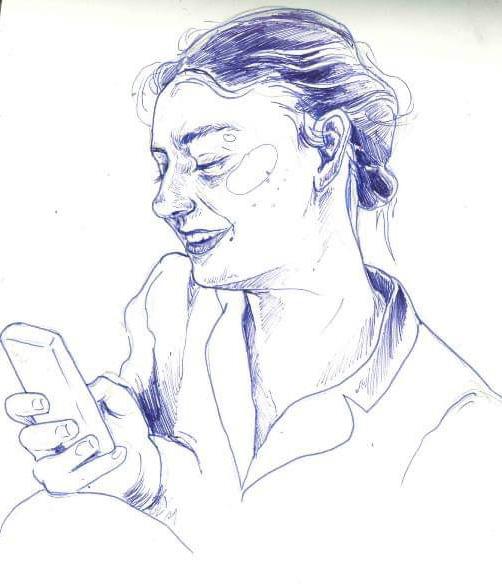 art by Imogen Edmundson
art by Imogen Edmundson
different things and show what I was capable of. This was a time to embrace the hustle of being my own person, see what I could do beyond the gilded cage of an institution. But I didn’t quite realise how I would need to become so reliant on a phone in this time of reset and the role it now plays. I’m a freelancer, a solo entrepreneur now and so need the device to find out if anyone’s been in contact or is perhaps wanting to speak to me. It’s a place to build bridges and manifest work and reach out to create opportunities which will pay the bills – needed in a cost-of-living crisis that the UK is in the grip of. It’s a chance to create relationships and put my hand up to say yes, I’m available or used to create boundaries when I don’t feel valued.
But it’s also a device that I look at with sadness. The intimacy that the phone is supposed to provide is a double-edged sword. Friendships tend to come from strong frequent connections and occurrences. And now I work solo and in an office so no more work buddies to eat lunch with or chat to on a regular basis and build a relationship on happenstance moments. Building a friendship purely via text messages is not as easy as it sounds. It can be done but the effort it takes is significant.
And the older you get, the harder it is to create relationships with substance. Friends from fellowships and school and other places are building their own families now and hitting conventional milestones of marriage, baby, social mobility ladder management rises and what we once had in common is fast falling away. And as we reach our midlives, I understand people are busy and caught up in their own small family bonds. The pandemic and aftermath highlighted mental bandwidth, capacity and time is limited, especially when it comes to interacting
with others. The phone becomes a place of snippets of conversation.
It’s possible to reach out via the mobile phone and understand the two ticks showing something has been delivered doesn’t guarantee a response. The phone holds ghosts.
I’m in that cusping Xennial period and it’s strange because in my lifetime the phone has evolved from being the device used to just call anyone to connect even just for the sake of it, to now having to book appointments to hear someone’s voice at least and then again people are booked up months in advance. Everybody is too busy. I’m just as guilty of doing this – “can we perhaps find a time next week or the week after?”.
“There are times that I’m glad I didn’t grow up in the smartphone generation while at university.”
I got my first phone more than 20 years ago just before I headed to Mansfield College - a chunky black Nokia 6110, numbers grey and tinny ringtone, with the bonus of the seminal Snake game included. It was there as a spare, still for emergencies and to arrange meet ups and catch ups. It was a rite of passage tech given to me by my parents so we could stay in touch if I wasn’t near a wired landline phone and we had important news to share that we just couldn’t wait. It was a brick of a phone and to be honest was mainly used to play Snake. I’d even have friends ask to borrow it so they could play for a little bit. There was the odd text but if the phone was going to be in use then it would be for calls
and short ones at that.
I’m guessing it’s different nowadays but the phone really was so low on the priority list of communication when I was a student. I left Oxford in 2003 so Facebook didn’t exist. Emails were in use to get in touch but they were mainly beneficial during the holidays. Old-fashioned speaking to each other and pre-planning events and times to meet to catch up in person were the order of the day. Heck even our pigeonholes in the Porter’s Lodge were far more important to pick up handwritten notes and events and reminders. Friends from other colleges would drop off notes and letters and it was always fun to wander in and see what had come through. I’m intrigued by what students do with pigeon holes now. Does anyone get letters now?
There are times that I’m glad I didn’t grow up in the smartphone generation while at university. It wasn’t always the easiest experience bearing in mind that I was of a time when there were few people like me there in terms of socio-economic background and racial heritage, and I’m not sure
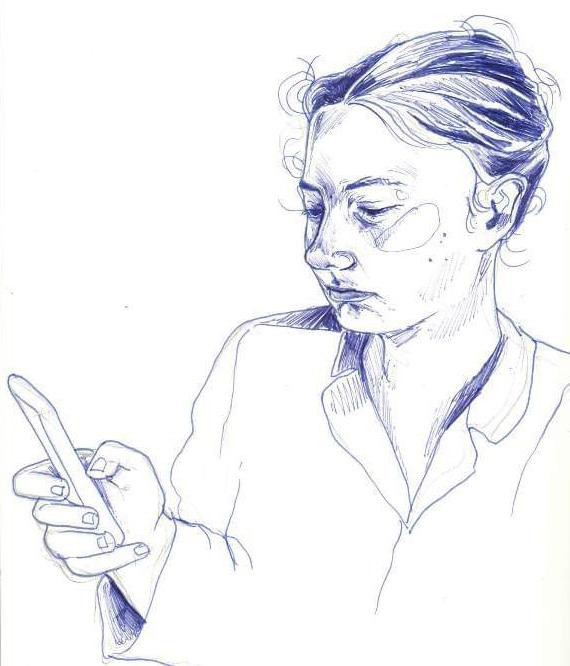
I would have wanted to have had somewhere where the ups and downs of being a young adult going through the turbulent university experience so easily and readily documented through the ease of having a phone around.
But now the phone is an umbilical cord. Both my phones are multimedia android-powered feats of engineering design. A smartphone is a hub for everything – watching live streams; messaging away; an assistant in a pocket. But yet I can’t seem to get the best out of the device. And I cannot blame the tool. Not fully anyway. I am the
“A smartphone is a hub for everything – watching live streams; messaging away; an assistant in a pocket.”
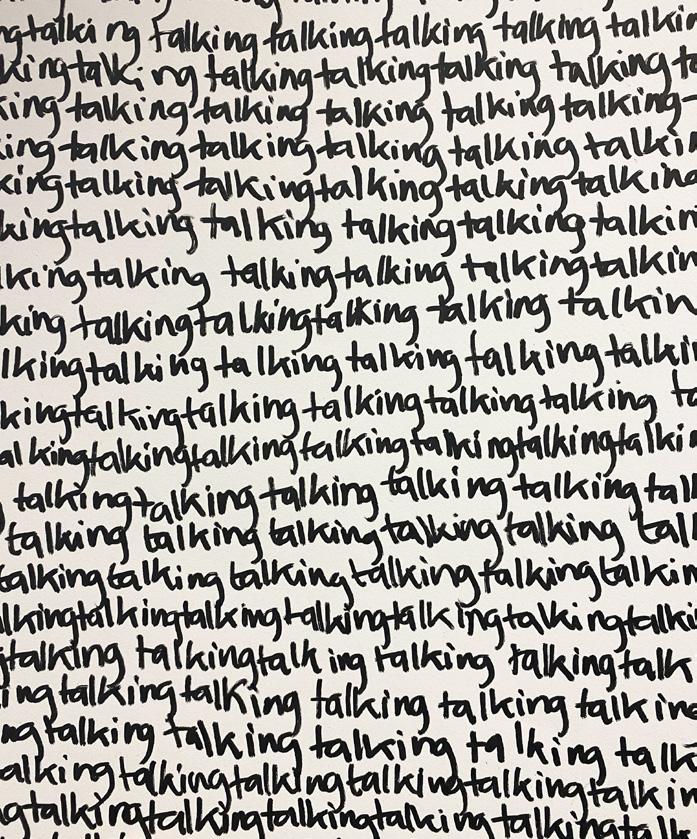
Keep it and it is a gateway to the world. Put it away or turn it off and it’s like you’ve created your own mini version of a lockdown.
data inputter, the user, the one responsible for turning it into a connectivity swarm.
Conversations begin on WhatsApp or Signal or Telegram or Insta message. But they are no longer prefaced by hellos and goodbyes and so are either never ending, or never quite beginning stories. A chat may start in May and then get picked up again October time with no knowledge of what’s going on in-between other than what’s seen in the public domain put out by either party. Is this normal? I don’t know. I don’t know who to ask.
The pandemic was a time for reset and to build human connection. But that phone, a device, is imbued with power. Lose it or if it gets nicked, it’s a pain to shut everything down and transfer and there’s a likelihood you’ll lose something with it.
Sometimes I look at my phone with frustration and see it as a source of loneliness and stress and I want to lock it away indefinitely. And then it rings…
THIS ARTWORK IS a powerful reminder of the inequalities and relationship between the rich and the poor. The backdrop of the turbulent seas sets the scene of human tragedy, the wandering to the unknown, the wet paths of horror for refugees and the condemned. The human being among, and as part of, the untamed power of a merciless Universe.
Hands appear from the waves of suffering, reaching out to each other, reminiscient of JMW Turner’s emblematic work “Slave Ship”. The hands are painted in gold leaf to symbolize the preciousness of life and the desperation facing people looking for solidarity in today’s crises.
by Salma Zulfiqar BEMThe centre of the painting depicts the Human Existence and longing for Peace. The human being itself is juxtaposed against a map of the world, focusing on Africa, a permanent Continent victim.
This work of Salma Zulfiqar addresses a world of terror and wrath and confronts the new pandemics that face us: on going wars, disasters, inequality, injustice - the crimes enforcing the hopeless part of humanity to the deathly turbulence of ocean waves.
Salma Zulfiqar BEM is an award-winning artist, activist, filmaker, and journalist

THE ANNOUNCEMENT IN January that Pitchfork was being folded into GQ got me thinking about the future of opinion journalism.
Music criticism, like columns and editorials, is a matter of opinion. Pitchfork, for over two decades, was the most trusted voice in music criticism, guiding audiophiles and casual listeners alike as they worked through their own music catalogues. It functioned as both historian and analyst, providing thoughtful assessments that were grounded in the extensive knowledge and variable taste of its contributors. Pitchfork was a dominant influence in music long before the introduction of streaming platforms, and I am sad to see it go.
When it comes to music taste, as with opinion, difference is a given. This is why cultural powerhouses such as Pitchfork matter – when there is a vast array of interests, coupled with a mass of options, expert voices who can provide some common ground are incredibly useful. Crucially, Pitchfork’s writers would rarely change a musical opinion which I had already formed for myself – instead, the magazine introduced me to new music that I loved, as well as providing a foundation for my understanding of the wider contexts of music history. These writers gave me perspective, providing independent voices which were different from my own, and the bigger picture of the network of influence within which artists were always working. In providing
by Mia Wua community, it allowed me to cement my own individual opinion.
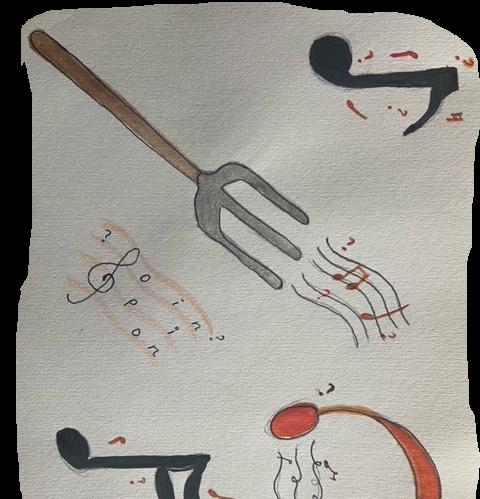
And that is what opinion journalism should be doing. In our current landscape, the best opinion writers do what Pitchfork’s music critics did. In fact, if we think of opinion journalists as critics – not just critics of culture, but of politics, economics, and the media industry itself – then we can hold them to higher standards.
Consider Pitchfork against the Opinion section of a news publication.
Pitchfork comprised experts, and Opinion sections should follow suit. Even guest essays on the website were written by those with vast musical knowledge. The everyday listener, who may only be interested in a review of their favourite artist’s recent album, comes away from the average Pitchfork article having received
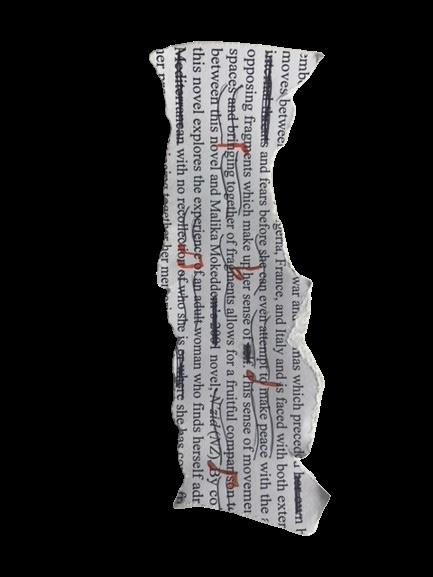
topics they write about weekly. While anybody is entitled to an opinion, those who craft a career around expressing opinions should have the education and expertise to substantiate their claims.
Expertise enabled Pitchfork to help us curate our tastes, sifting through an overwhelming number of competing options to find what resonated with us the most. Before its model was essentially displaced by the clever recommendation algorithms of streaming platforms, independent music criticism was a counterforce to getting lost in mainstream radio hits. And Pitchfork was
art by Zara Arifnot scared to be opinionated, or to pick fights –whether or not a critic liked a top hit, they would have a thorough analysis backing their opinion up. The Pitchfork critic’s suggestion was always that blind conformity to popular trends negated
Opinion journalism should mirror this. As our social media algorithms feed us recommendations which are tailored to our preexisting reading habits and political leanings, high quality opinion journalism should be something that encourages readers to think differently. Nowadays, our news habits are captured in a series of data points, and as the way we read informs the recommendations which we encounter, it’s easy to get caught in echo chambers. But opinion writing provides human structure for information, contextualising the amounts of information we receive and reframing it in ways that challenge our
Like music criticism, it should wear its biases on its sleeve. Good opinion journalism is thoroughlyedited and fact-checked, held to the same high standards as reporting. More importantly, it is candidly self-conscious about its own partiality. These markers can be obvious, but they are necessary: pieces should be labelled ‘Opinion’ to clearly distinguish them from traditional reporting, and the personal ‘I’ pronoun should be coupled with verbs that demarcate subjectivity, such as ‘I believe’, ‘I think’, and ‘I suppose’. Opinion journalists examine the world in light of their own expectations for it – that is the job description. But they should do so while continuing to take account of the complexity of other people’s opinions, remaining empathetic and accommodating to those who disagree. Keeping the comment section open.
The folding of Pitchfork means the loss of a powerful source of opinion, but music criticism will stick around. Our generation engages with stories differently – internet commentators, for example, are popular, with individuals on social media sharing their opinions on music to audiences of millions. The same hunger for interpretation, argument, and reflections remains, but it is up to our legacy media to find ways to lead these conversations. Some publications are doing better than others – on a given day as many as half of The New York Times’s most-read offerings are from its opinion pages. But for opinion journalism to thrive, there must be multiple strong voices coming from across the political spectrum and engaging with each other in respectful ways. And if anything,


the very act of thoughtfully and intentionally disagreeing with someone else’s opinion is an inherently respectful one.
There will always be a need for critical voices. And the best of these soften our own perspective, or at least shift them into a slightly different light. The best music criticism helps me find a new song that I may never have listened to, and now love. Yet when news organisations don’t hold their opinion writers to the same high standards and factual scrutiny that their reporters are held to, then opinion writing can
threaten public trust in journalism. It is divisive, and it is deeply biased. But as Pitchfork showed us, bias is not an inherently bad thing – as long as we keep it professional.

One of the best family activities to do at a grandparent’s house is viewing their old photo albums. Tucked away in their old drawers are memories that belong to sidetracked conversations at family reunions, soon to be forgotten and replaced by exciting, vivacious anecdotes of young children. As a frugal individual who’s always reluctant to throw away stuff, I was determined to preserve these memories, just for a bit longer. So, before everyone started to go on their phones, I asked my grandparents if I could view their photo albums.
The room suddenly got busier. The slight resemblance of a nose, the unusually sharp stare of a younger version of a relative, a fun summer story attracted immense interest from all members of the family. The sepia hues of these photos seemed to lure me further and further into the embrace of a hidden past, asking me if I saw
the turning wheels of bicycles
the dreams and vanity of a provincial town any signs of selfishness on the innocent face of a relative who eventually sued his own father and squandered all the family money
smiles which become more and more difficult to
by Jennifer Yangtrace as time leaves its marks on one’s own face
behind their stiff postures, their love and lack of love
the gait and limp of an age
the unchanging landscape and the cruelty of that unchangingness (they write the name of the tourist site but not their own names)
the neglected, glorious, reverent struggles of what public school cliques call ‘plebs’ crisscrossing in the map of time.
“My greatgrandmother now lives contently within the confines of a 4cmx4cm photo.”
I have just finished Annie Ernaux’s The Years, an account of the life of a single French woman told through memories, culture, political movements, personal anecdotes, literature. With Ernaux’s fluid writing, one feels to be bathing in the flap of waves in time. Her attention to the most infinitesimal details sets the mind wandering in
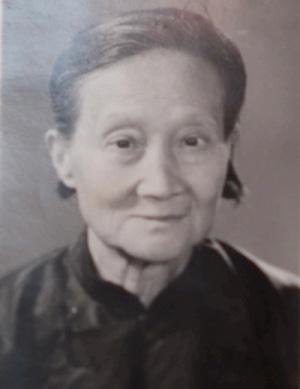
life’s vibrant intensities among a backdrop of monochromous humdrum. As I looked at my grandparents’ photos, I couldn’t help but colour those still moments with unsaid passions and regrets.
Unlike the political and cultural concerns that dominate the mind of Ernaux’s French narrator (with the names of politicians that I recognise thanks to my A level knowledge), my grandparents’ stories had graver undertones.
From the Second World War to The Great Chinese Famine to the Cultural Revolution, the protagonists of those photos were reigned by persecution, shame, fear, hunger, loss, poverty – their minds were inundated by the sole will of survival, filled by a scarcity of ‘higher forms of thought’.
Now look at this woman, her face lined by age, her smirking mien, her lingering stare, finely combed hair tucked neatly behind her
ears.
I wonder why she looks so calm. I mean
how did it not destroy her, being the spoiled young daughter of a wealthy landlord and having to become a nanny as upended fate robbed her of affluence? Having to see her favourite child on his deathbed, the apple of her eye losing its rosy hue as Death remains unmoved by its splendour?
She must have wept in the deep of the night.
Yet she smiles at me.
History smiles at me with its rulelessness . (or is it ruthlessness?
Am I on the right side of history?)
My great-grandmother now lives contently within the comfortable confines of a 4cmx4cm photo. Along with my uncle’s passionate oral account of her life, my photo of her seems to preserve the incredible flux of a common – or uncommon – woman at a time of unpredictability.
Looking at those old photos amid more detailed family discussions, a jarring world order emerges. Growing up at the time of the Cultural Revolution, my grandmother married a soldier to ensure a stable social status, as soldiers were prized for their humble births in a new world fostered by communist ideals, whilst my grandmother, being the daughter of a wealthy landlord, was an easy target for the Red Guards. Conversely, her sister, being eleven years older than her and already a skilled engineer when my grandmother was a child, was sent to the countryside to teach along with her husband whom she met at university, as the planned economy in the 1960s in China meant that jobs were limited. I suppose it was never easy for them, having spent long days
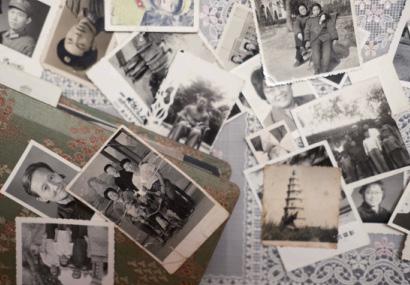
and endless nights religiously searching for the academic truth that they regarded as faith, only to be sentenced to a small, rural town.
Every month they would have to come home to a child who barely recognised them, as my great aunt and uncle sent their son to a larger city to receive a better education at the age of eight, even though intellectuals were not highly respected when the Cultural Revolution ended in 1976, a few years after my uncle was born. I suppose in those long hours of toiling, they never for a moment doubted the power of knowledge despite the many absurdities of society, as they repeatedly said to their son, ‘study hard, work hard, go to university’. And he did.
(These are not stories of epic, heroic rebellions, merely ordinary people striving after ordinary happiness, passive against the cruel juncture of time into which they were born. It was never easy, though – ordinary happiness –for one never realises when one has it, and often realises when it is too late.)
They are stories of fortitude and fearlessness despite the despotism of fate.
My paternal grandparents, now living comfortably in their spacious flat in a small provincial town, enjoy a peaceful life characterised by trips to play mahjong with friends. The streets, devoid of any traces of chaos or poverty, intersect in an orderly fashion – it is difficult to imagine that such discontent has taken place at all. It then occurred to me that we have inhabited drastically different worlds, being only two generations apart. My grandparents have not spoken anything other than their dialect, whilst I have spoken three languages in one dinner party, each with a hybrid accent signifying my upbringing, education, and occasional confusions about my identity. My conversations with my British friends about living in China is oftentimes inundated by exaggerated prejudices - about its towering authoritarianism, rural poverty, dense population - whilst the disappointing truth for them is that it’s simply not that bad.
(One hardly notices the trivialities of pain when one can endure)
It sometimes strikes my boarding school friends that my grandparents have lived through the Cultural Revolution, something portrayed as being ever so impossibly oppressive, and that I am here, occupying the same classroom as them and analysing their literary war - ‘Dulce et Decorum est’ - on a rainy afternoon. It shocks me, too, that my country has emerged - so quickly - from the calamities of its very recent past and eased its bruises.
(see these people chatting/ doing the groceries/ working/ walking their dogs/ falling in love/ worrying/ eating/ reminiscing/ watering their plants/ laughing/ distressing/ going on their phones/ dreaming/ daydreaming/ panicking/
showing off/ smoking/ sleeping/ suffering/ rushing at this very moment their worlds enclosed yet open, transparent yet opaque, timely yet untimely? )
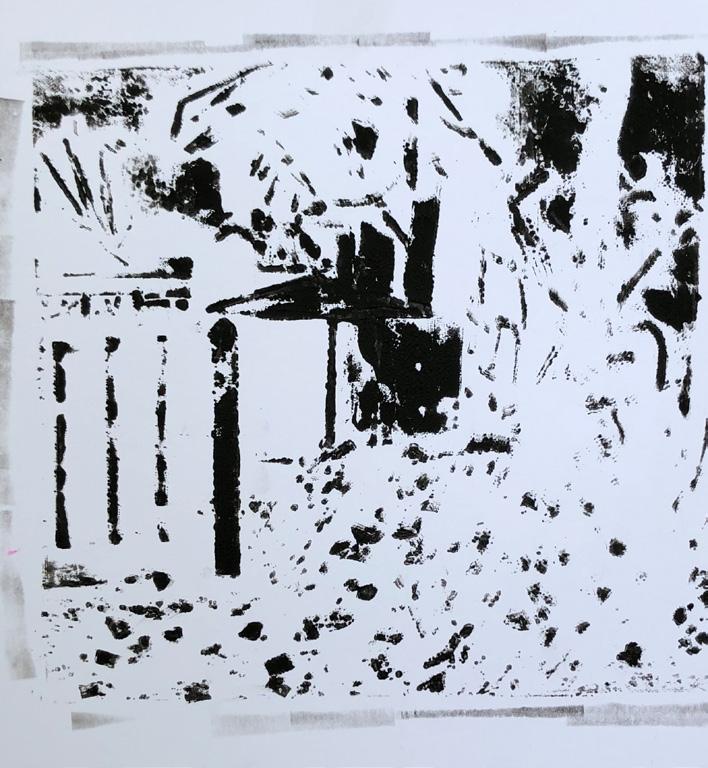 art by Millie Davidson
art by Millie Davidson
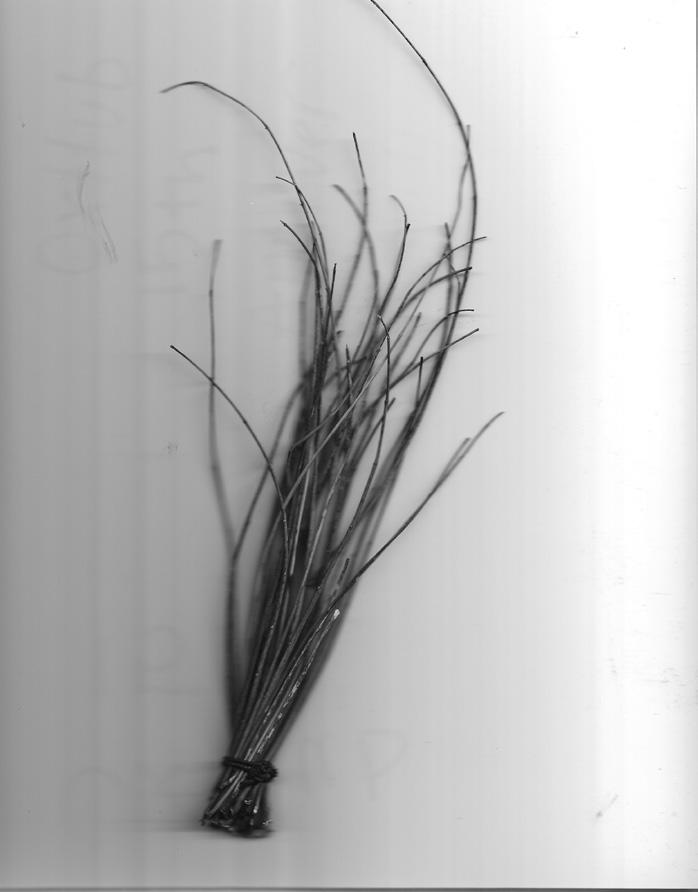

These bruises have not disappeared, though - they are merely bandaged by the negligence of the modern age. These bruises appear in the nexus of my purple veins whenever I attempt to feign the colour of my skin when I’m away from home. These bruises appear when life silently bleeds through these black-and-white photos, despite its ugliness agony
suffering injustices
demanding to be remembered in the rawest form.
WHEN I SAT down with Judge Theodor Meron, the first thing I asked was what to call him. As we circled around Trinity College, where Judge Meron is an honorary fellow, it struck me just how relaxed students and staff felt around him. “Everybody calls me Ted. Also, all the undergraduates. Some call me Judge Ted”. It’s an unexpected remark from a man whose legal career has spanned some of the most consequential events of the 20th century, but, as I learned over the course of the hour and a half we spent together, not unfitting for Judge Ted. His achievements have been, and continue to be, extraordinary and yet, he takes the time to highlight how much he enjoys learning from those around him in Trinity College. “We all learn from everything and everybody. [The students] are very interesting people”. He has a few central pieces of advice for them: “…not being afraid of changing directions and not staying their whole lives in one box, in one drawer, to live their lives honourably…it’s such an incredible privilege to be able, at my age, to be a professor in Oxford and to be with students”.
Meron’s own career could certainly be described as one of ‘changing directions’, although, he’s keen to point out that one period felt somewhat different. “I think I actually had three or four careers which were somewhat related, somewhat not. I was always an
by Sam Wagmanacademic at heart, but actually, the period of my life which I enjoyed most and I consider to be the most rewarding was my two decades as an international criminal judge”. Conterminous to his love of Shakespeare, it’s apt that Ted chose to paraphrase Prospero in the Tempest when describing his judicial career: “I sometimes felt that this is the stuff that dreams are made of”. Certainly, you’d be hard-placed to find an individual with as storied a career as Meron’s: an Israeli delegate to the United Nations between 1961 to 1967, legal advisor to the Israeli Foreign Ministry following the Six Day War, counsellor on international law to the US State Department,
“I sometimes felt that this is the stuff that dreams are made of”.
the Presiding Judge over the International War Crimes Appeals Tribunal for the former Yugoslavia and again for Rwanda, it’s a list that places Meron at the pinnacle of international law. I started our conversation, however, at the beginning of Judge Meron’s life, in Kalisz, Poland.
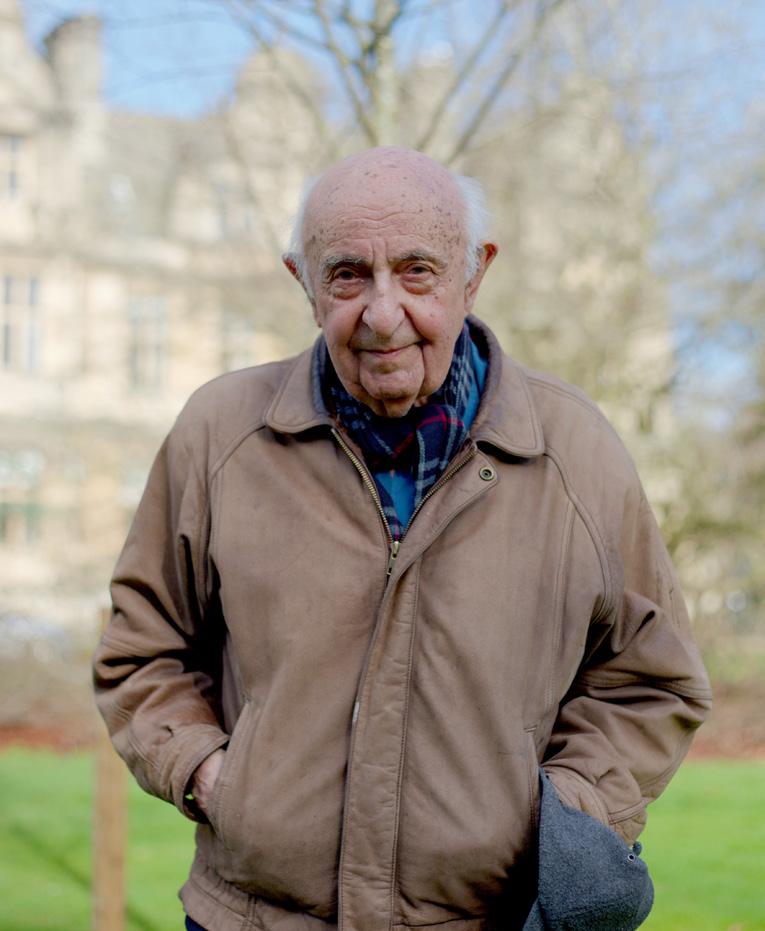
He’s warm about his years spent in pre-war Poland: “I spent three years in the primary school [in Kalisz] and I mostly remember from that period the constant playing of Chopin in the school auditorium…I had a happy childhood; a very, very uneventful childhood, and that’s perhaps the best kind of childhood to have”. Those early years of education were abruptly ended when Meron was just nine years old by the outbreak of war and the beginnings of the Holocaust in Poland; I naturally felt compelled to ask him what effect that has had on his outlook on life. “I think there’s no question that I emerged from the Second World War not only happy to be alive but sad having lost so many of my closest relatives. But, I also emerged from that period with an incredible hunger for education and the desire for normality. Normality in the sense of being able to go to school, being able to continue in the university, being able to have a career, avoiding helplessness.” Meron doesn’t shy away from identifying elements of his childhood as forming part of the genesis for his subsequent
career in international and humanitarian law: “… it encouraged me to think early on about the importance of human rights and the humane treatment of people. I asked myself whether there is anything in my eventual career that I could do to prevent the sort of chaos and loss of autonomy from which I suffered during the Second World War?”.
There appeared to be a poeticism to Ted’s life – from surviving persecution and genocide on European soil, to passing legal judgements on those that attempted and succeeded in pursuing that same agenda. When I verbalised my hypothesis to Ted, he swiftly responded in the negative: “No, no. I wish it were. I just did what had to be done. There was a period in my life when I wrote some poems, but that does not mean that I was close to poetry”.
In 1967, Judge Meron was asked to write an opinion on the legality of the construction of settlements in the Occupied West Bank. The 1967 opinion and a follow-up in 1968, written for then-Prime Minister Levi Eshkol, were buried as ‘Top Secret’ until in 2006 an investigation by the historian Gershom Gorenberg (published by the New York Times and the Independent) revealed that Meron had stated that the construction of settlements clearly violated the provisions of the Geneva Conventions. It’s a monumental piece of legal work, made all the more noteworthy by the fact that it only makes up a fraction of the contributions Meron has made to international law. Yet, in much the same way Meron has regarded the rest of his legal work, he sees this opinion as another example of his faithfulness to the law. “I’ve always known my duty. Legal advisors should call the law as they see it, without any fear and favour, and this is what I did in that job and I continued with that same
principle towards the law as a judge”. Despite his overwhelming attitude of responsibility, Meron is still surprised with how consequential those “three pages” have been, both legally and in the public perception of him: “I think I have published 13 books on humanitarian law and human rights, on public international law and so on…But, I never expected that this would become the best known of my writings. Three, type-written pages”. I ask him whether those three pages are something that he has been most proud of in his career – “I think so…legal advisors are sometimes tempted to say what their leaders would like to hear, and I believe that they must not…They have a higher duty to state the law as it is.”
Meron’s life has not just been defined by his legal career, but the events he has witnessed across the 20th century. I asked him, briefly, about how it felt being in Israel for independence in 1948. “Well, it was very exciting. People felt this is going to be very good for the Jewish people, especially after the horrible experience of the Holocaust.”.
When it comes to the current situation in Gaza, he’s more tempered: “Of course, the situation is very complicated and complex and I wish Israel would have followed my advice against settlements.” It speaks to the influence of Ted’s career that his professional past is entwined in discussions of contemporary events.
We moved on to a discussion of ‘Judge Meron’ and the incredibly significant tribunals and cases that he has presided over – what’s he most proud of? “…of being faithful to the basic underlying definition of international criminal law…I’ve always felt that that international criminal law rests on the principles of fairness and due process and on the insistence on a judicial agenda, which is based exclusively on
evidence and the law and which does not accept or follow any narrative of guilt”. He launches into an appraisal of his illustrious judicial career and the cases which have stuck with him. The case against Dragoljub Kunarac, part of the International War Crimes Tribunal for the former Yugoslavia, receives repeated mention, particularly the contribution Meron made in regard to the prosecution of rape. “At that time, rape committed in non-international conflicts, for example, was not yet considered to be a war crime. This was pretty outrageous.”
“One of the things which I was sensitive to is not letting my background or childhood as a victim of genocide affect my objectivity with regard to cases of genocide.”
Judge Meron’s cognisance in regard to his personal past and his consequent professional life shined through in his discussion of his judicial work. “One of the things which I was sensitive to is not letting my background or childhood as a victim of genocide affect my objectivity with regard to cases of genocide.” It is startling to imagine oneself in that position – a victim of genocide and thereafter having to retain a neutral attitude towards such similarly heinous crimes – and makes Judge Meron’s life all the more extraordinary. “I was not there on a mission to vindicate or to avenge my, not very happy, childhood. I was there to dispense justice and my conscience with regard to those 20 years on international courts is comfortable”. That’s not to say that the Holocaust is absent from Meron’s professional work; when recounting his role in viewing the definition of genocide as including mental anguish too, he notes the bestowal
of voice onto the neglected victims of the Holocaust. “People who were sent to Auschwitz and Treblinka, loaded on those cattle trains, knowing or suspecting that they were being sent to slaughter; they too…should be viewed as victims of genocide, even if they managed to survive.” It is clear, in the vibrancy of Ted’s language and the enthusiasm with which he speaks on his judicial work, that his faithfulness to the law and abidingly clear sense of justice also represents a great personal privilege – I recall in this moment, his earlier sentiment, “that this is the stuff that dreams are made of”.
Across the duration of our conversation, Judge Ted was personable, joking, and comfortable. I asked him how he retains that signature positivity when spending so much time with the darkest recesses of humanity. “Well, I suppose you cannot be a professional in international criminal law, especially a professional judge, if you are not, by nature, a little bit of an optimist. You realise that terrible things are happening nowadays, atrocities are being committed all over the world but also, you see the progress that has been made…the pendulum will one day swing into happier times. Progress is not made in a linear fashion.”
Meron’s love of Shakespeare, on which he has published several books, is imbued with the same drive for justice and concern for humanity that defines his legal career. Becoming interested in Shakespeare as a Visiting Fellow at All Souls College, I asked him what his favourite work is: “I think perhaps Henry V because of the variety of the issues it presents. I was impressed by the fact that Shakespeare chose to be so extremely sarcastic about the very opportunistic advice given by the Archbishop to the King to justify his going to war.” The parallels between
Meron’s belief and previous work on the role of the legal advisor and judge and his approach to Shakespeare’s work is not undocumented, but it remains astonishing to watch Meron’s mind in action. When speaking further on what drives Ted’s love for the Bard, he mentions the “scepticism of Shakespeare regarding the usefulness of wars and his conviction about the futility of wars.”
Whilst Judge Meron remains stunned by Shakespeare’s work and the complexities it draws out, any observer would be similarly stunned that a man for whom “high school Macbeth was the entire limit of [his] knowledge of Shakespeare plays” has risen to the highest legal and academic positions in the world. As Ted began walking me out of Trinity College, we stopped at a tree, planted in Trinity garden last year by Meron’s colleagues in memory of his late wife, Monique. Meron described himself as still quite devastated by the recent loss. It’s a moment of great emotion for a man who has contributed more than most to the preservation of the world’s humanity; a sincere reminder that an individual who has dedicated his life to the betterment of justice and fairness against atrocity remains absolutely human. U.N. UnderSecretary General, Melissa Fleming, when introducing Judge Meron to the United Nations General Assembly for Holocaust Memorial Day 2019, described him as having lived a life “in the defence of justice”. When I asked Ted if he perceived his life in those same terms, his response was couched in the same objective and judicial use of language that I’d come to expect:
“I think that would be quite close to being accurate”.
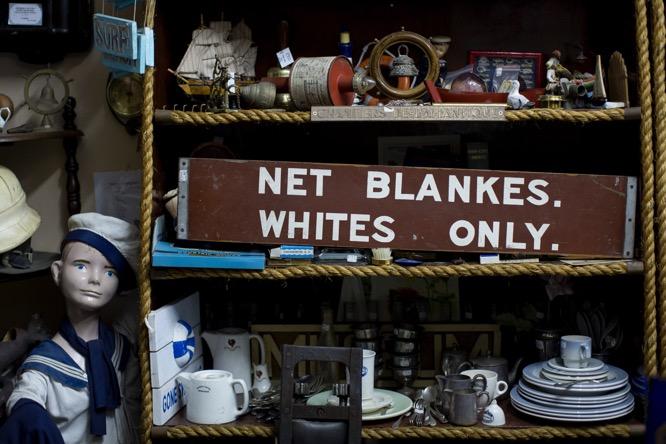
“Un/Settled is a project that explores white South African histories, privileges, and reflections on identity. Every nation has a past and must confront it in order to see the present clearly, and to imagine a different future. I grew up just as Apartheid came to an end. Ever since starting primary school, I have been told that I am a child of the rainbow nation. The end of Apartheid was signalled by a great gesture of forgiveness and hope, one that must have seemed at the time, to transcend the decades of violent oppression. Many white people seem to have taken the release of Nelson Mandela, and the platforms for redemption and healing under the Truth and Reconciliation Commission, as absolution. It was not absolution.”
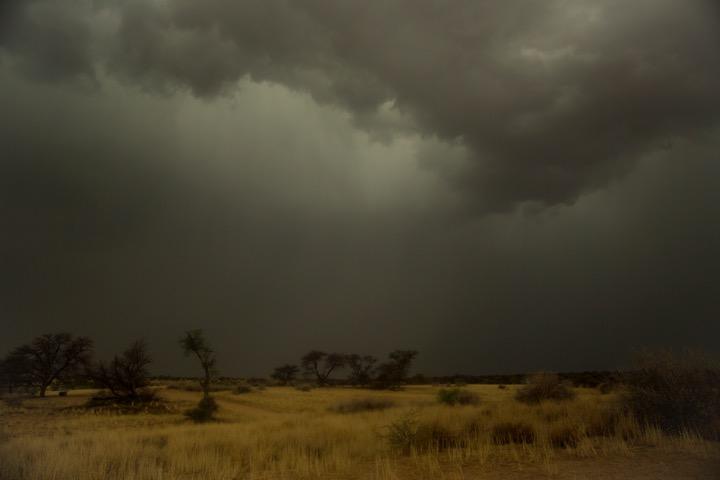
“My grandmother was a Voortrekker, she was in a concentration camp as a child. The British burnt all the farms.”Ina Van der Merwe, Retiree
“The next generation are picking up the remaining elements of white hegemony, with an assumed sense of superiority and white living conditions.”
Albie Sachs, Constitutional Court Judge

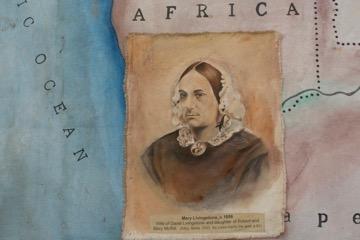
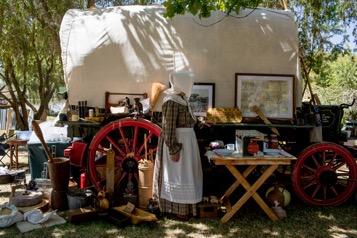
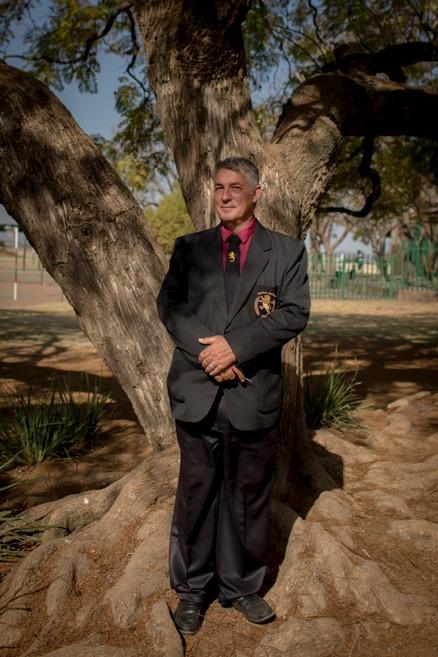
“When Nelson Mandela first came into power, most people of my generation thought they going to come and burn down our houses and there is going to be a war...”
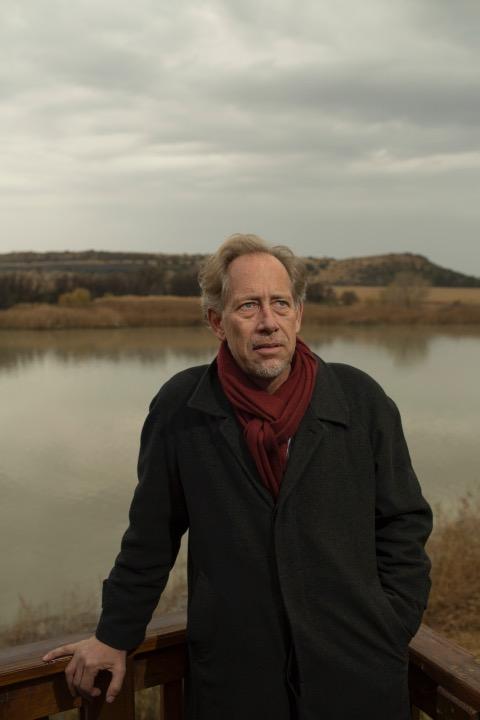
“I think, if we as white South Africans have a historical debt to pay, then everybody that was connected to the slave trade has a debt to pay. A conscious, emotional debt.”
“What place do we take up after the unsustainable system of minority government? I consider myself South African, but it is still a question of what exactly South Africa means. We have a view of South Africa being a community of communities of many different backgrounds which can form something of a federal union. Land means belonging. It is an existential question. It is such a given. Human beings are mobile, especially Afrikaners. When French people get rich they buy yachts. When an Afrikaner guy gets rich he buys a farm. Whenever it is abstracted to something as simple as ‘giving the land back’, what does giving the land back mean? Which exact land?”
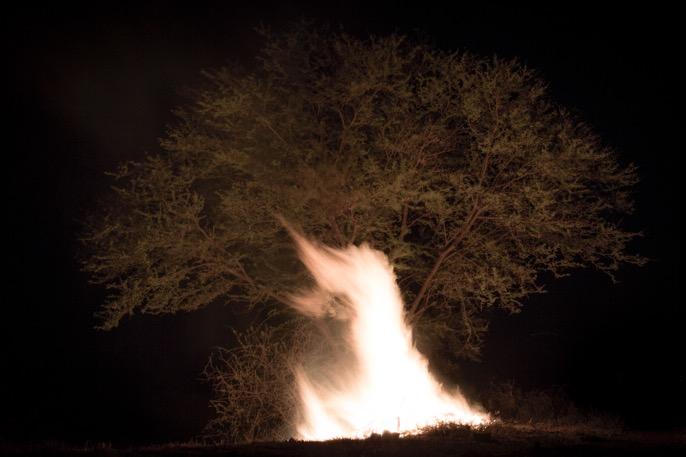
“We are the milk cows of a social welfare state teetering on the edge of collapse.”
Anonymous
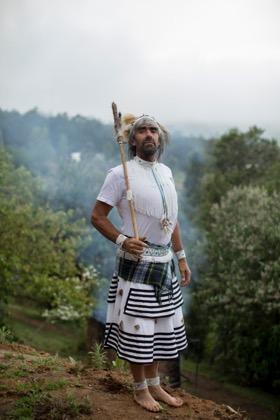
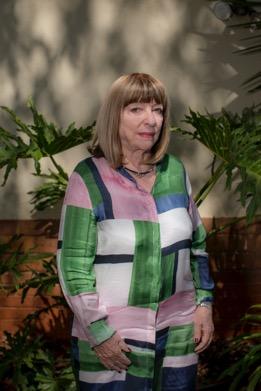

“I have survived unspeakable brutal violence in this country and as a result I have given myself permission to leave.”
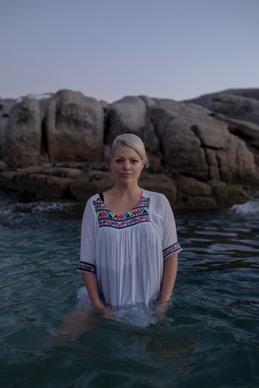
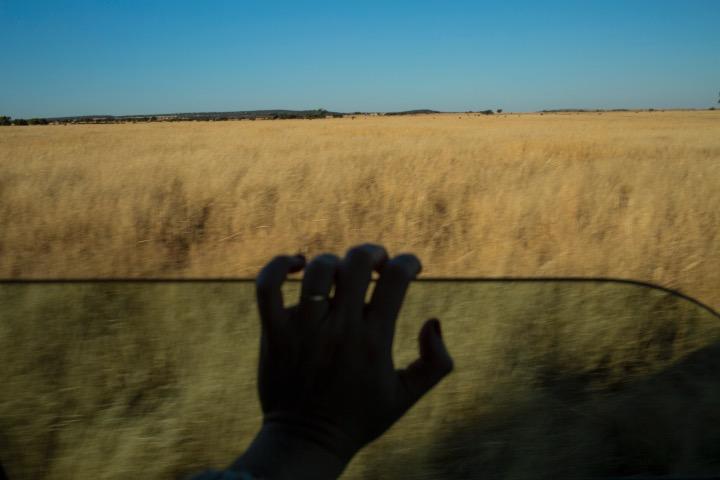
Sydelle Willow Smith is a storyteller passionate about media advocacy working across Africa, based in Cape Town, born in Johannesburg. Her love of photography developed at The Market Photo Workshop, which led to a deeper ethnographic enquiry in Visual Anthropology at The University of Cape Town, followed by a Master’s of Social Science in African Studies from The University of Oxford.
ENDLESS SCROLLING THROUGH social media feeds is never a proud experience. It is, we tend to think, nevertheless a voluntary one, which is partly why it embarrasses us. But recent studies have suggested that social media usage is a behavioural addiction, which triggers the reward pathways common to addictive substances like drugs by releasing bursts of dopamine. Dozens of US states are currently taking Instagram’s owner Meta to court for knowingly inducing addiction in young users, and Millennium Cohort found in January that 48% of British teenagers describe themselves as addicted to social media. From a biological viewpoint, our decisions are no longer entirely free: when we open the For You Page, our autonomy hangs in the balance.
But membership of the digital sphere is no longer a choice. As Marissa Auer explains, ‘partaking in the digital world and thus willingness to share one’s data on a daily basis has become more a question of social access than of free choice’. To risk addiction, to give up data, to be susceptible to influence: these now count as ‘prerequisites for our self-definition as autonomous subjects in today’s society’. Paradoxically, to claim autonomy in 2024 is to be a member of the digital community where things happen, and so to give up aspects of autonomy by necessity.
The influence social media has on us renders our freedoms still more precarious. If the so-called
‘echo chambers’ generated by the Following page create closed epistemic communities where people are reinforced in their own held beliefs, this pales in comparison to the work of the For You page. Computing not only who we follow, but who we are (from gender, age and race to geographical location), what we show engagement with (even if that is a momentary hover), and countless other factors which Big Tech’s CEOs have themselves admitted to not fully understanding, these hyper-complex algorithms recommend and promote highly filtered content as if it is universal. These ‘filter bubbles’, Eli Parisser argues, ‘interfere with our
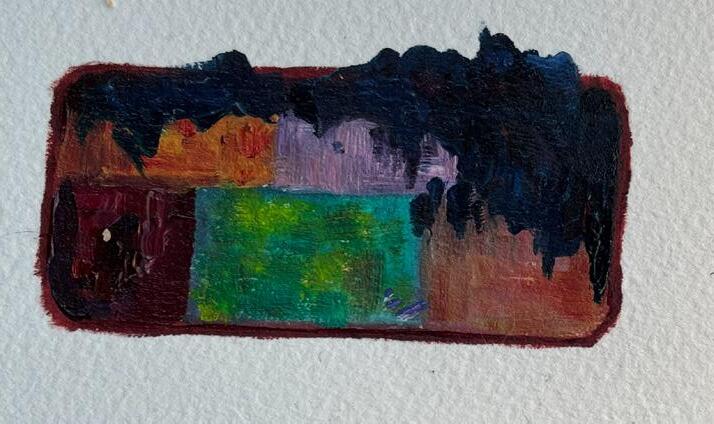
ability to properly understand the world’ and distort ‘our perception of what’s important, true, and real’. These algorithmic manipulations mean our decisions are no longer properly informed. We are neither coerced nor persuaded, but led towards beliefs by opaque algorithms which increasingly know us better than we
know ourselves. As Auer puts it, the free individual disappears ‘behind big data and its algorithmic readability [...] data statistics literally know the individual person better than she knows herself’. After decades of hacking computers, we are, perhaps, in the process of being hacked back.
These addictions and manipulations are definitively 21st-century problems, but its best evocation remains a novel of the 1930s. Classic literature is often defined by its ability to gain new meanings in different time periods, but Aldous Huxley’s Brave New World (1931) has taken this even further: as the decades have passed, his visions of social control have come to life. Huxley imagined a world where people were drugged with amusement: genetically engineered and then aurally conditioned in their beliefs, dependent on a physical drug called soma and preoccupied with rounds of endless amusements, from erotic ‘feelies’ to electromagnetic golf. Because freedom is supplanted by pleasure, this vision is less instantly horrifying than Orwell’s contemporary notions of Thought Police and a Ministry of Truth - what’s so bad about being hacked, after all, if everyone’s happy?
Perhaps as a result of this ambiguity, Huxley’s vision has made its way into our culture with ease, as Neil Postman argued of the rise of television in Amusing Ourselves to Death (1985). ‘No Big Brother is required to deprive people of their autonomy, maturity and history. As [Huxley] saw it, people will come to love their oppression, to adore the technologies that undo their capacities to think’. In fact,
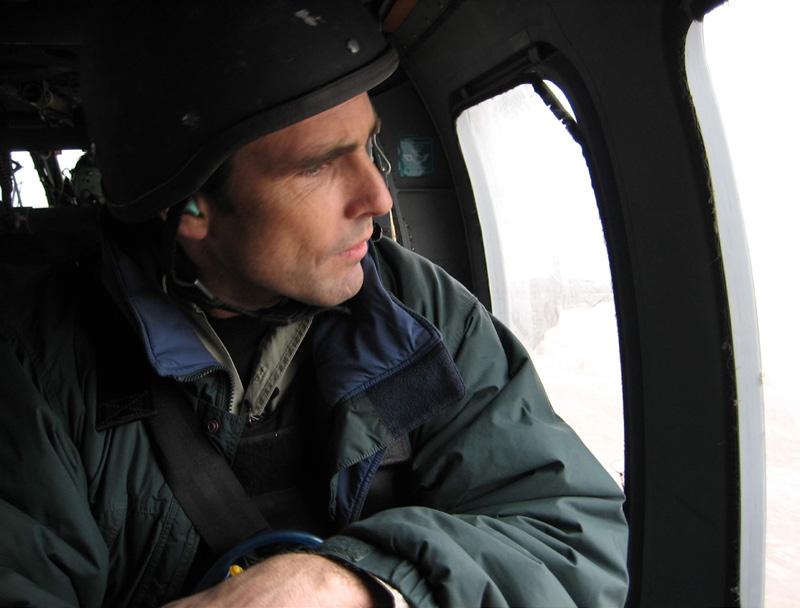

the contrasts Postman draws between Orwell and Huxley might produce a description of social media feeds, decades before their invention: ‘Orwell feared those who would deprive us of information. Huxley feared those who would give us so much that we would be reduced to passivity and egoism. Orwell feared that the truth would be concealed from us. Huxley feared the truth would be drowned in a sea of irrelevance’.
Huxley’s critique turns on the notion that freedom is a higher human value than happiness, as Yuval Noah Harari put it in his recent introduction to the novel: the ability to make autonomous decisions underpins pillars of our society from liberal democracy to free-market capitalism, and most of our history and literature traces the progress of human decision-making. In the wrong hands, Harari continues, digital manipulations could amount to a new totalitarianism, as scandals like Cambridge Analytica’s use of Facebook algorithms have warned us. Unlike Bernard Marx and his freethinking companions, all of whom are exiled or dead by the close of play, we are fortunate enough to be still in the nascent stages of impulses which tend towards Huxley’s World State. If dystopian fiction models one realisation of the current

trajectory of the future, its message is that there is time to divert the course. To avoid a new hell, Harari explains of Huxley’s thinking, we must conceptualise a new heaven first.
Tentatively speaking, what might this look like? In a later foreword to Brave New World, Huxley regretted not including an alternative of ‘sanity’; for him, this is a decentralised society in which ‘science and technology would be used as though, like the Sabbath, they had been made for man, not (as at present and still more so in the Brave New World) as though man were to be adapted and enslaved to them.’
To reconceptualise technology as a tool to complement human autonomy requires both a promotion of its positive applications and a limitation of its negative ones. After all, AI systems could do great things for human autonomy. As Carina Prunkl has argued, AI could help us to think through the decision-making processes we are often inclined to make instinctively and emotionally, allowing users to refine their voting positions. It could highlight and help us to overcome hidden biases, especially in contexts like clinical decision-making. As an assistant to rational thought, its potential is immense.
The negative applications of the algorithm have landed many Big Tech companies in court over the last few years. The current case against Meta is one instance of a turning tide of governance
which has sought to limit algorithmic threats to autonomy, especially in the wake of Cambridge Analytica. This means protecting vulnerable groups, especially children: the UK’s new Online Safety Bill, which takes a ‘zero-tolerance’ approach to preventing children viewing age-inappropriate content, sets a firm legal precedent which has been too long absent from technological governance. The rest of us might assume full responsibility for our consumption habits, but there is still a raft of governance issues at stake. Chief among this is a greater transparency on the part of Big Tech about what its algorithms actually involve. We might consent to all sorts of things upon signing up for a social media page, but this is essentially uninformed consent; not least since in the digital community of 2024 there is no real choice but to consent. Readily available transparency would show the user what this consent involves and could also be effectively curtailed and adapted where it fringes on human rights and freedoms. As the Digital Revolution becomes less a revolution and more a Huxleyan social contract, the time is coming to close the gulf between Big Tech on the one hand and consumers and legislators on the other..
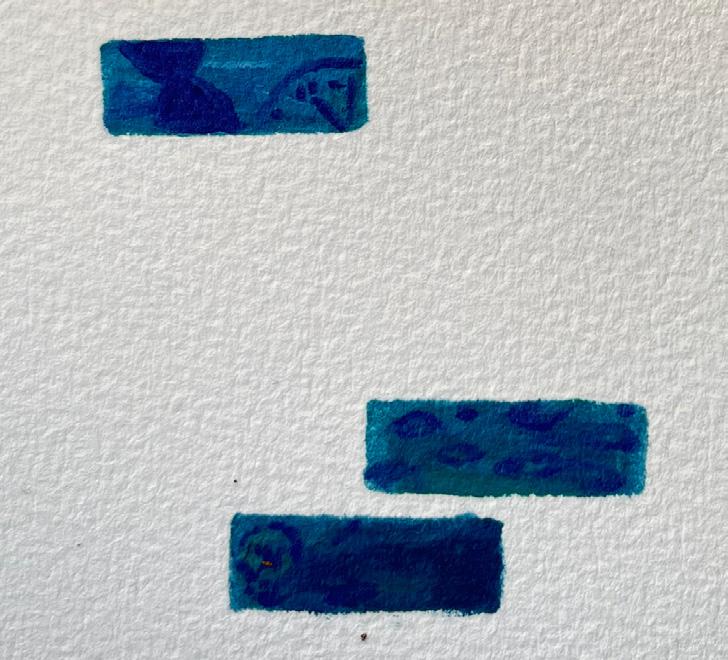
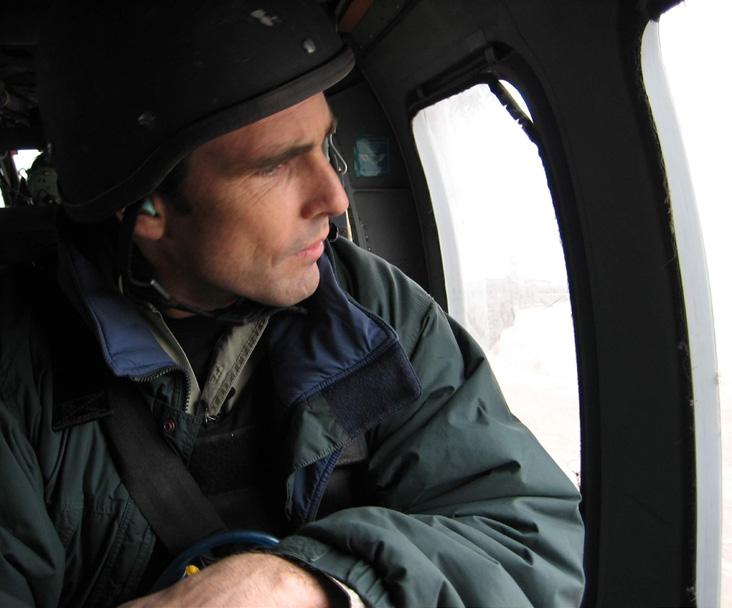
IN The Oxford Forum’s Spring 2005 edition, Brent Stirton’s photographic observations on Iraq depict a war-torn country home to a distraught and traumatised population. Photos of armed militants sitting beneath the Iraqi flag, waiting for bloodshed to ensue reveal the fearful numbness gripping Iraq at the height of war. Iraqis’ stoic and resilient “capacity for suffering” Stirton writes, was staggering. “30 years of Saddam will do that for you.”
13 years after the US withdrew its troops from Iraq, I speak to Bob Woodruff about his recent return to Iraq following his near death experience whilst reporting at the height of war in 2006. Bob is an American journalist who has been a reporter for ABC news since 1996. He got his start in journalism as an interpreter for reporters during the Tiananmen Square massacre in 1989. His “infatuation with conflict” has taken him to all corners of the world, from intense disasters to landmark elections.
It was reporting in Iraq however, which irrevocably changed his life 18 years ago. Reporting from an Iraqi vehicle on a sandy road in Taji, Iraq, Bob and his cameraman, Doug Vogt, were blown up by an improvised explosive device (IED), causing Bob to lose part of his skull. Since his miraculous recovery, the urge
to return to Iraq to finish his reporting mission never subsided. This past April, Bob returned to Baghdad to witness first hand how the country has transformed since being in the grips of war.
I ask first about his impressions of Iraq in 2006. “It was my fourth time reporting on the war and everything had changed. We knew that there were IEDs everywhere outside of Baghdad. We had to embed with the military for security. Most of the time we interacted with Iraqis on the streets of Baghdad, but cautiously. We had limited access to much of the culture. (...) It was
“Going with friends and family for an ice cream in the midst of war maintained a sense of normality”
Despite the country’s crumbling cultural assets, there remained the Al Faqma ice cream parlour in the centre of Baghdad, which still stands today. Going with friends and family for an ice cream in the midst of war maintained a sense of
normality, a testament to Iraqis’ resilience. The business was not attacked during the war, until hit by an ISIS suicide bomber in 2017. There are now nine locations around the city.
The ice cream parlour made a special part of Bob’s return visit, as seen in the documentary After the Blast: The Will To Survive. “When we went this past April the ice cream shop was completely alive. There was no evidence of war apart from a few soldiers roaming the streets.” Without the presence of American troops, Baghdad is an Iraqi city again. Culture is not just accessible but celebrated. People walked the streets with an air of happiness, a wellbeing that was completely indiscernible 18 years ago.
However, in poorer rural areas, as Bob explains, the cultural memory of war still pervades. Many Iraqis are frustrated with the US at not having secured an American democracy in their country. “Iraq is a very well educated country. It has a great sense of equality, unlike Afghanistan where women and men are not educated equally. Yet there is still a difference between those who are and aren’t well off. A lot of them have lost their faith, and seek another country. The Sunnis in the middle do not feel that they got what was promised to them. (...) It depends on where you are economically. For many it isn’t the life they dreamed of.”
Our conversation shifts to the plight of peace plaguing the Middle East. Coincidentally, it was the 2006 Palestinian election which delayed ABC’s arrival in
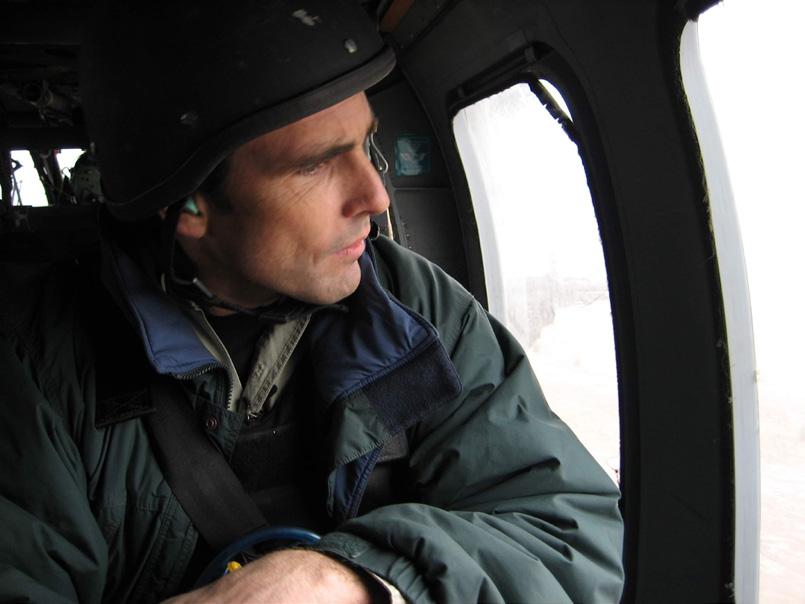
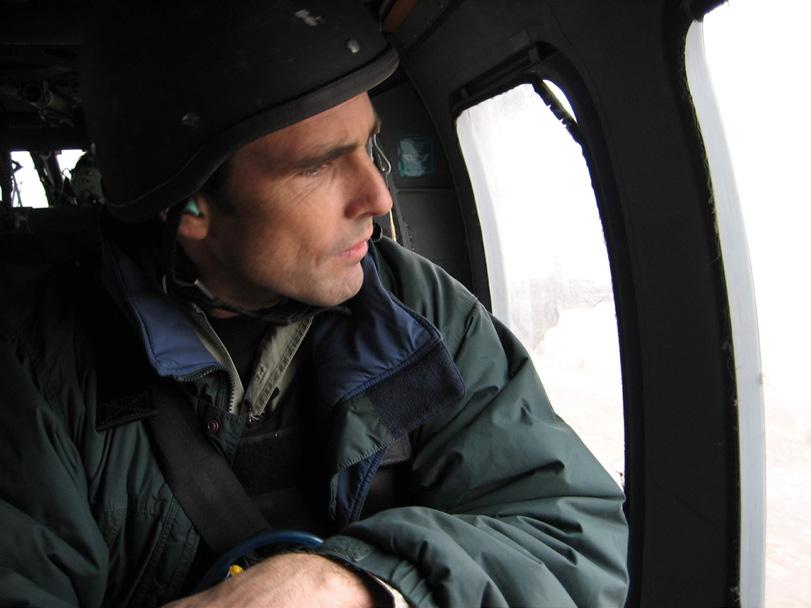
Baghdad, after having made a stop in Jerusalem to report on what seemed would be a Fatah victory. After Hamas’ surprising victory, the team had to stay an extra day before heading to Iraq. Bob speculates on how this diversion may have interfered with the timing of his being “blown up”.
Now with the Israel-Hamas war at the forefront of global politics at the moment, I ask Bob about his thoughts on future peace in the Middle East. His reply is honest. “I know as much as anyone else what the reality is of achieving peace.” Having been the epicentre of conflict for over fifty years, there is no let up like there used to be. Bloodshed is ongoing.
I ask if he has any desire to report on the IsraelHamas war. “Reporting in a situation like that is something that - it has always been my preference to report in important places, unique cultures, where you can make an impact by reporting.” Given that Gaza is classified as a war zone, most of the reporting access for American journalists is in Israel, with no close access to the disaster he’d like to be reporting on. It would not be worth it, especially after having nearly lost his life on the journalistic frontlines.
Unlike the asymmetrical Iraq-US war between
countries so geographically distant, the current war between two countries with such direct proximity, both weaponised, has no precedent. Yet the importance of fair and balanced reporting is more important than ever. “I can’t imagine seeing what Gaza looks like right now. To actually be there, it feels sick. But as a reporter I want to see it. If they can get equal anger in reporting from both sides, then that’s the sign of balance. This is one of the more difficult ones to report about.”
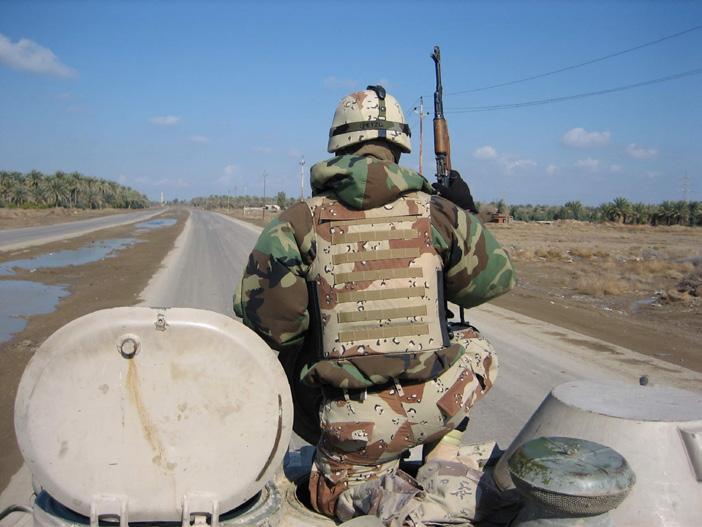
Back to Iraq. My final question to Bob is about the most staggering difference between Iraq now and back in 2006. The road where he was hit by the IED, once secluded and unpaved, is now a busy, flourishing motorway. American troops are almost entirely gone. The few that are left remain secluded at the military base. There were even a handful of tourists in Baghdad’s historical quarters. “Iraqi people are able to celebrate events, restaurants are amazing. We could just go in and out of the hotel as we liked.”
Despite this renewed sense of freedom in Baghdad, Bob says that Iraqis remain fearful that it could all happen again. Under a government that didn’t accomplish the democratic security citizens hoped for, the younger generation strongly feel that Iraq is no
place to create a future. Behind a bustling city lurks disillusionment, distrust. Seeking a new life abroad is the solution for those who have given up on a powerful future state.
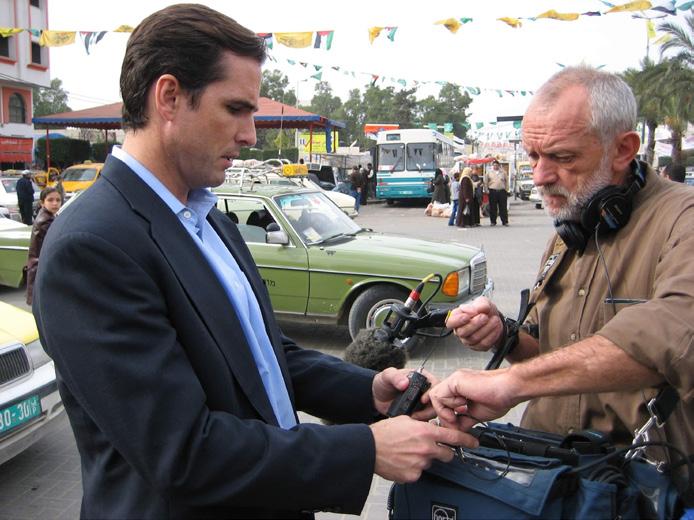
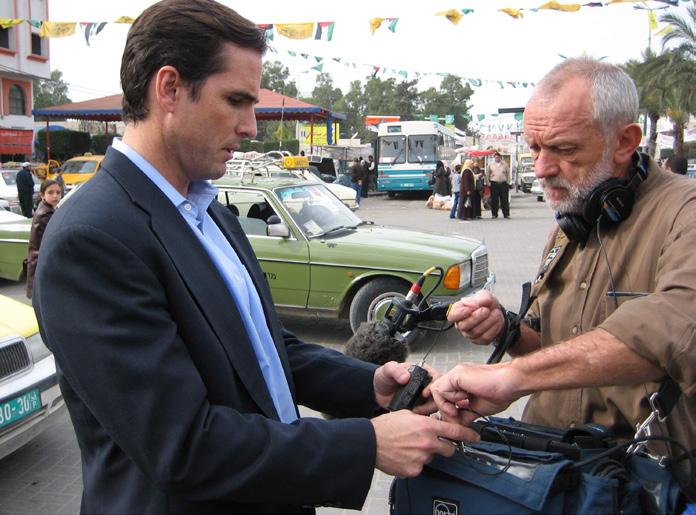

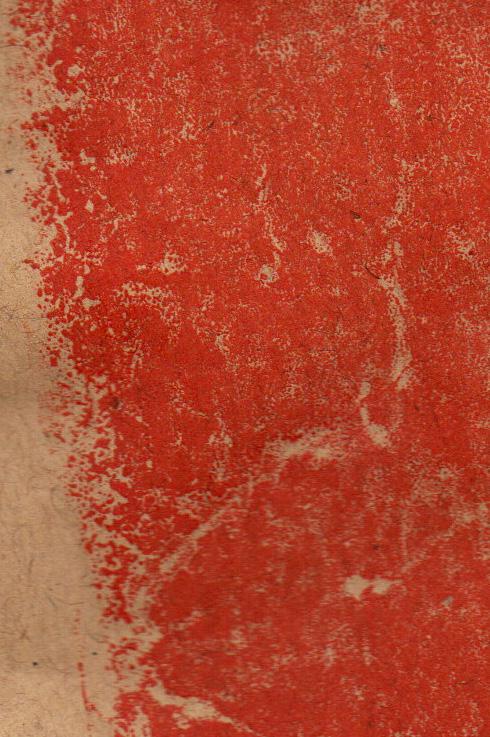

1 2 3 4 5 6 7


Student journalism is a great deal of fun-and a good way of holding university administrations to account. The good news is that career journalism can be at least as fun. The bad news is that it doesn’t pay as well as other careers, job security is virtually non-existent, and ethical dilemmas are a regular occurrence. Here’s a few tips on navigating the minefield of early-career journalism.
Ignore overly-specific advice on “the future of journalism”. So-called listicles (like this one) were the future ten years ago, and they’re currently horribly out of fashion-but probably due a comeback. Previous zeitgeists of my career have included data journalism, fact-checking, Facebook Live videos, Snapchat, Reddit AMAs, and many more.
Focus instead on timeless traits good for journalism. Too many people focus on a piece they would like to writeinstead focus on a piece a specific audience would like to read. Hustle is the most important trait in separating a great journalist from a good (or average) one. Persistence pays off.
Journalism school is good if you can afford it, not least because it forces you to write journalistically every week for a year. This helps you unlearn bad habits from academic writing, build up an early network in the industry, and learn about the various legal restrictions and ethical codes to which you’d need to sign up. Bursaries exist but are competitive.
Don’t expect to jump straight into a national newspaper, and don’t assume that’s the best route in, even if you make it. Entry-level jobs on nationals often involve almost no actual reporting. Multiple UK nationals expect a fully-written article, with pictures and captions, every 45 minutes a practice —a practice Nick Davies (of phone hacking fame) decried as “churnalism” almost 20 years ago. It has only got worse.
One of the best routes into actual reporting is to start on business-to-business (B2B) publications.These tend to look like the magazines made fun of on Have I Got News For You, but some of the biggest stories start thereInside Housing made great revelations post-Grenfell, Health Service Journal has the best reporting on the NHS, and I started my own career at Press Gazette (a media job covering the media, no less) and The Grocer, covering supermarkets and food manufacture.
If you like social media and you’re good at it, lean into that. If you don’t like it or you get yourself into trouble on there, you can stay away from it without destroying your chances of having a career. Social is less important now than it used to be, and while building an independent “brand” works for a small minority of journalists, most still don’t have one. Newsrooms provide less support for staff getting abused online than they should, so don’t expose yourself unless you want to and think it will benefit you.
Having online fans is almost as dangerous as having online haters. It incentivises you to say what they want to hear, rather than inconvenient facts, it divides your loyalties, and being admired online is addictive-you want that high again. A fanbase can compromise your ethics just as much as an unscrupulous editor can.
8 9 10 11 12
At some point in your career or training, you will hear from an experienced journalist asked to offer you advice. The question is usually framed as “if you had one piece of advice for the aspiring journalists in this room, what would it be?”. The response, which they inevitably think is either clever or funny, is “get out while you can, this industry is dying”. I am happy to confirm people have been giving this answer for at least thirtv vears. and it has become an answer for at least thirty years, and it has become neither truer nor funnier over that time.
You may be asked early in your career-especially if you’re a woman—to mine aspects of your personal life for first-person pieces, which can be very tempting early breaks in prime feature slots.Try to give yourself time and space to consider these options carefully before you do so-decide what aspects of your personal life you are and are not willing to disclose ahead of time, even—so that you don’t feel like you’re an exhaustible resource being mined by newsrooms hungry for content.
If lists come back into fashion, here’s a few tips from a former BuzzFeed News staffer: never have ten things in a list, it looks forced. Odd numbers perform better than even. End lists on a high, vary the tone throughout. And if you want to do a basic explainer of some UK political event, market it as “for Americans”-it will get some US readers, and British readers will feel happier to click on it than they otherwise would, weirdly.
Journalism is a small industry full of people whose job it is to know lots of people. In other words, news gets around-so it is generally better to be a good colleague than an overly ruthless one. People tend to move around between different papers, too, so tread carefully there. There are plenty of editors who won’t care if you’ve criticised a story they were involved with, or an outlet they worked for, but if you’ve attacked their friend online that could cause you problems. Don’t let that censor you, by all means, but it’s good to know it can have consequences.
No-one has a great network of contacts in the industry (or of sources) when they start out, even if journalistic nepo-babies have a head start, they are catchable. Go to talks on journalism that look interesting to you, go to networking events (look up “hack drinks” in London, which are free), get out there where you can. Sadly the industry remains very heavily focused on and in London, and it is harder to get started from elsewhere-but not impossible.
13 14 15 16 17

No commission is harder to get than your first commission. Getting used to hearing “no” is part of getting ready for this career—it is a word you will hear daily. But once you’ve got your first commission, or even better your first job, you’ve done the most difficult bit. The next one will be easier.
You will make mistakes, and these will include ethical lapses. Make sure you learn from them, own up early and often, and try not to repeat them— editors expect mistakes, but quickly lose patience with people who repeat them.
“Allegedly” is not a magic word. Defamation law is complicated, but you re most likely to win if you’ve written the piece fairly, not made any guesses, and given everyone named a chance to respond to allegations. If in doubt, seek advice.
Always take a portable phone charger with you, everywhere. You never know when news will break or some other story will come around, and phone batteries die so much more rapidly than you’d guess.
Journalism can be the best and most fun career in the world. You get to be nosy, provocative and curious, all in a good cause. If that appeals, it is worth the slog to get there-but remember, however hard you work to be fair and accurate, if you’re saying something people don’t want to hear, they’ll still dismiss you and your work. Feel free to dismiss them in turn.
art by Louis Rush
WHEN WE STARTED the process of putting the Oxford Forum together, we tossed around many potential magazine titles. Resurgence struck a chord. It encompassed both the joy in the consistent changing of the tides and the curiosity that beholds the resurfacing of fresh ground. The heart of the Oxford Media Society – a passion for creation and communication – sustains a solution-focused approach to navigating global waves of self-advocacy and agency.
As the generation who came of age during a global pandemic, the surge in social media usage has left us in a precarious situation. Stuck in an all-consuming echo chamber, struggling to be selective amid an overwhelming flood of notifications and endless doom scrolling – fact is easily warped. Unlike the days of sitting down to
art by Yasmin Beed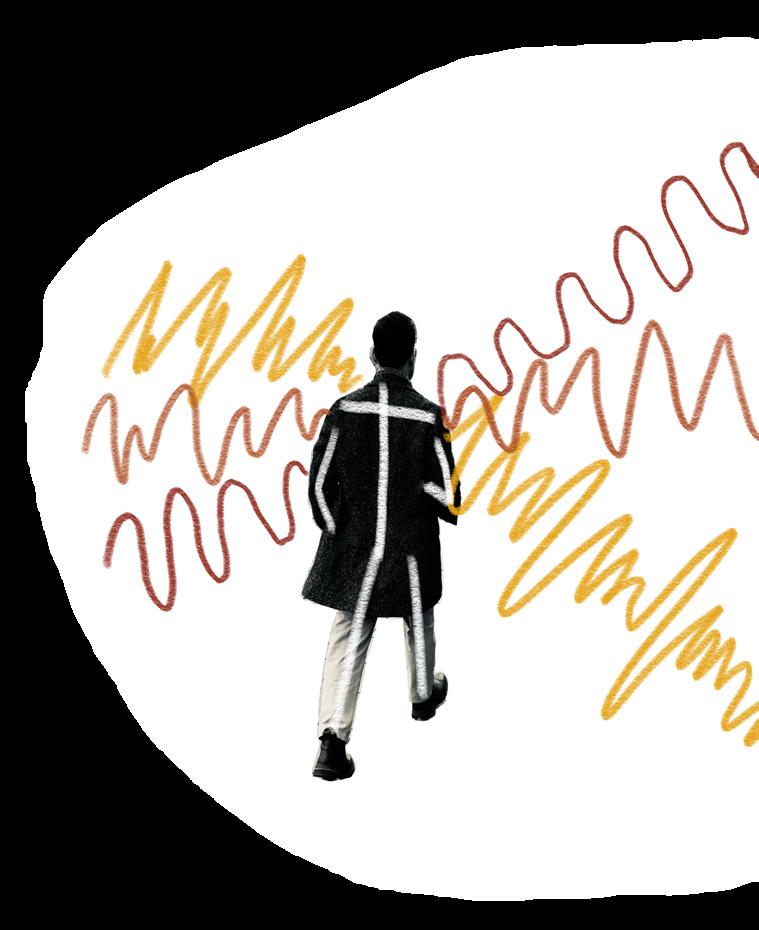
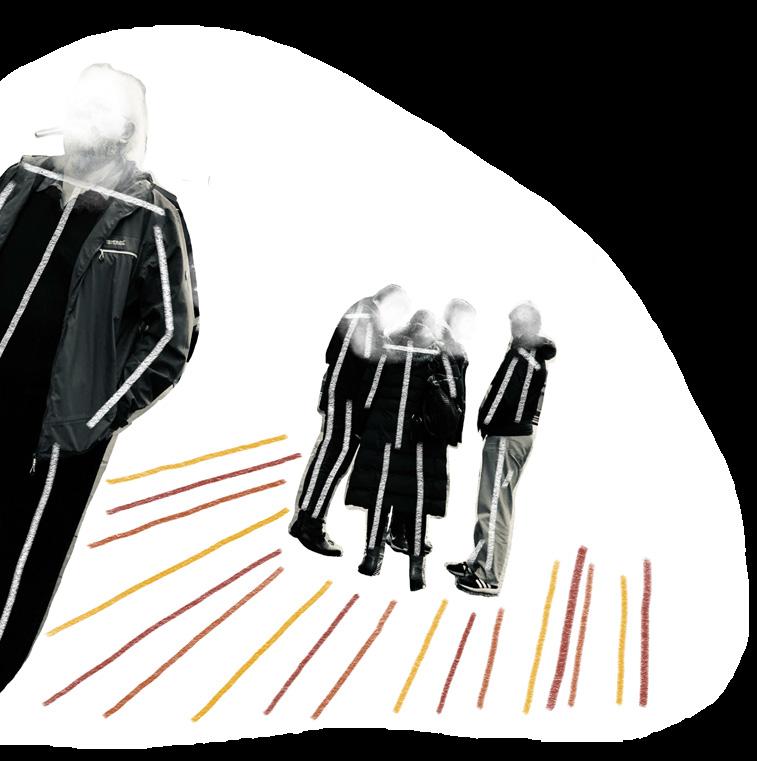
read the morning paper with ample processing time, social media robs us of our autonomy over when and how we receive information. Whether it be a simple ‘get ready with me’ vlog or political extremism, we are here to be influenced rather than informed.
The outward focus of the Forum reminds us that we are not restricted to these echo chambers. Uniting diverse opinions is essential for building a sense of perspective, an understanding that we are not confined to limiting bubbles, whether this be the vortex of clickbait or even Oxford life. With the work of professional
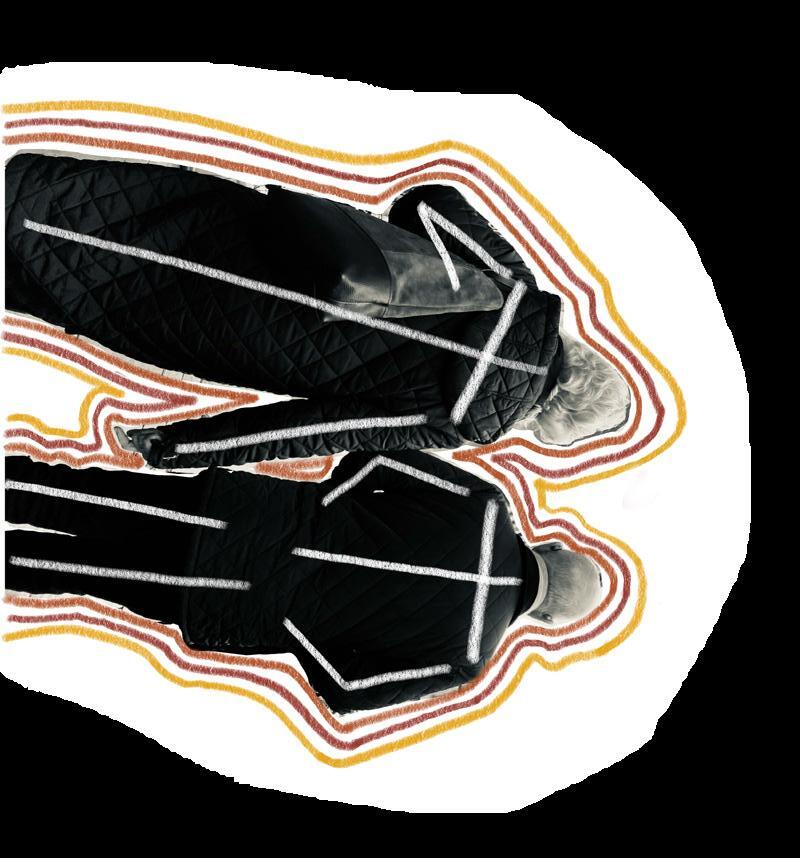
journalists alongside students in the Forum, this commemorative edition constructs a sense that university is a springboard into the ‘real’ world, as opposed to a platform upon which to simply observe.
Twenty years on, we have chosen to readdress current affairs: reporting on Covid-19 from the newsroom, the data invasion of Meta, and journalistic ethics in the face of profit. But we also sustain a sense of the past: the legacy of the Iraq war and China’s Cultural Revolution, and modernity as it resurges from enduring threads.
We must acknowledge the incredible team effort that has gone into reviving this ambitious publication. Our wonderful editors – Maisie, Eva, Elliot, Paul, and Luisa –who worked to curate commissions and ensure that the Forum is a
place for slow and thoughtful opinions. Our fabulous creative team – Isaac, Yasmin, and Daniel – for devising and commissioning incredible art and photography, to accentuate these stories.
A very special thank you to Rachel and Haochen, our President and President-Elect, for their fresh vision for this project. Finally, to Zoe Flood, the original founder of the Forum in 2004 who has championed this magazine’s resurgence.
Yours truly,
Sophie and Josita Editors in Chief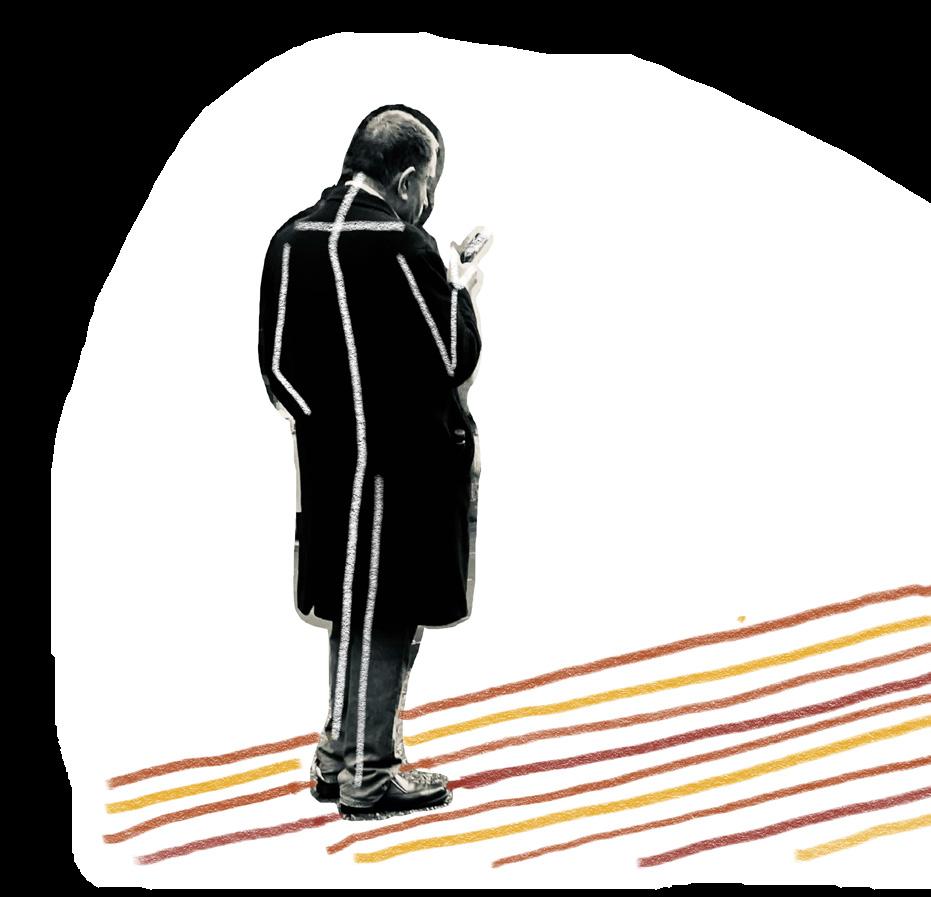
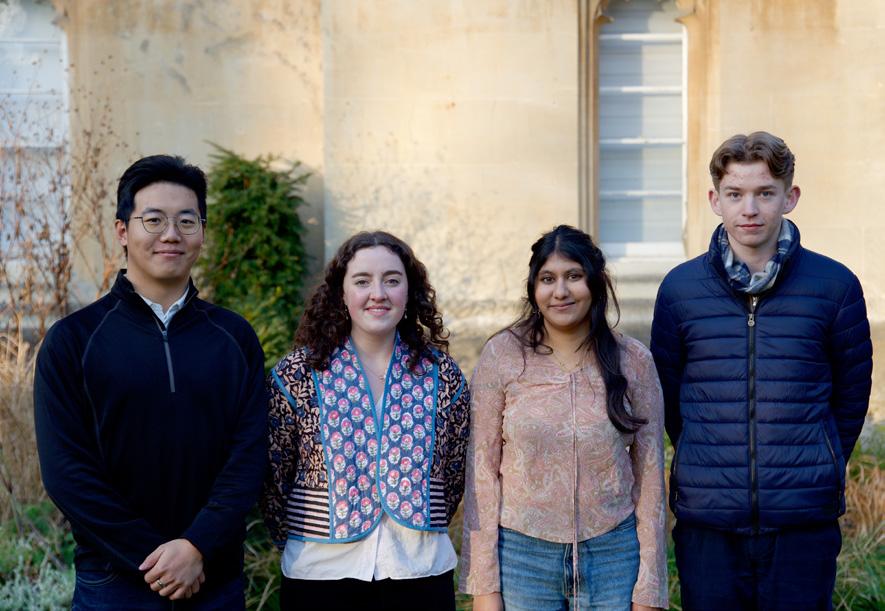

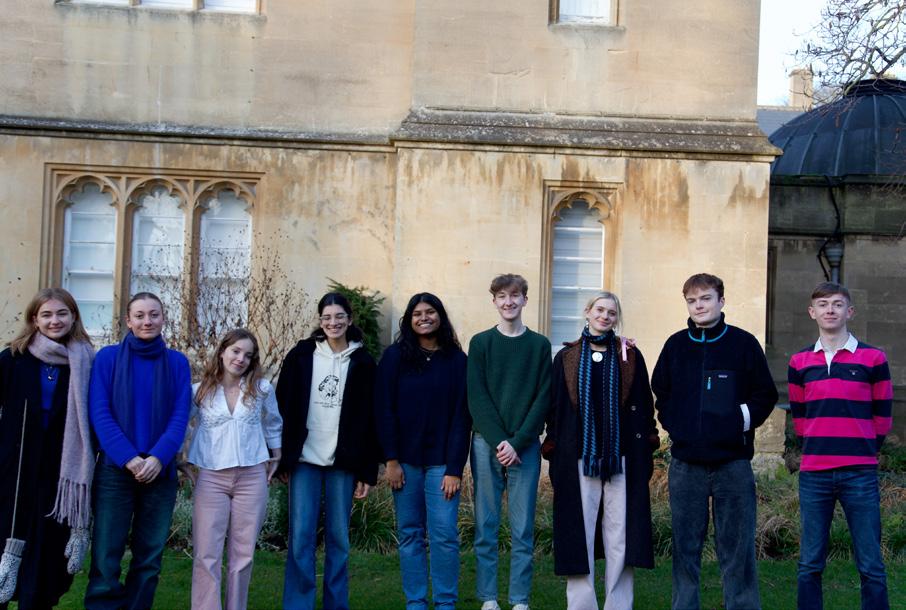

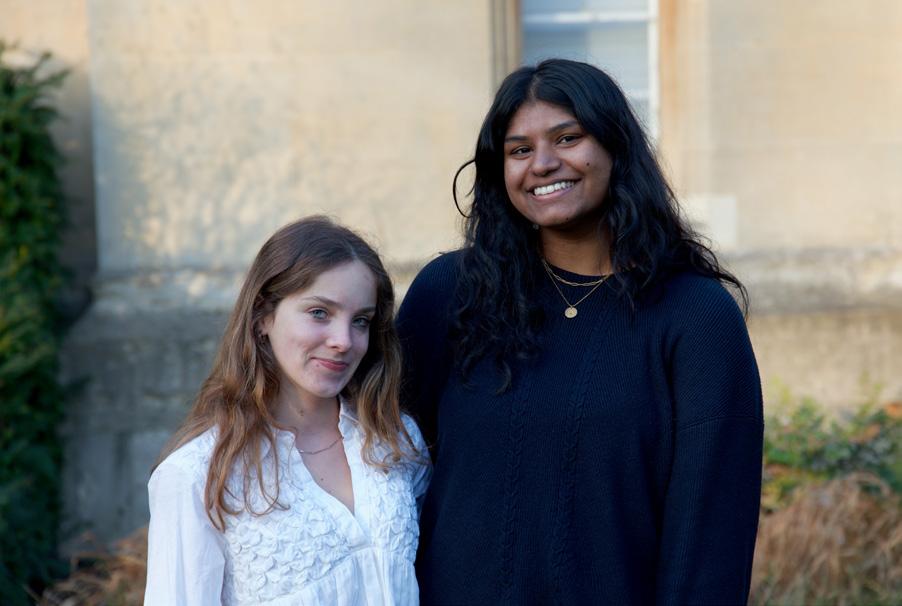

Rachel Turner - President Haochen Wang - President Elect
Yasmin Beed
Isaac Mead
Daniel Stick
Josita Kavitha Thirumalai
Sophie Magalhães
James Ball
Zoe Flood
Rosa Furneaux
Sophie Magalhães
Judge Theodor Meron, CMG
Clemmie Read
Dhruti Shah
Sam Wagman
Bob Woodruff
Mia Wu
Jennifer Yang
photos by Daniel Stick
Luisa Blacker
Elliot Francolla
Maisie Fraser
Paul Furey
Eva Hogan
Zara Arif
Imogen Edmundson
Amber Ellis-Keeler
Millie Davidson
Elliot Francolla
Louis Rush
Vita Sunshine Bannister
Salma Zulfiqar BEM
Veda Dharwar
Nelson Fernandes Serrao
Dowon Jung
Adam Tomkinson
